






Donald Trump takes office, signs significant executive orders
BY GRACIELA TIU features@theaggie.org
On Jan. 20, 2025, Donald Trump took the presidential oath of ofce and became the 47th president of the United States. Major political ofcials — including the four other living presidents, lawmakers and the nine Supreme Court Justices, along with a handful of big tech CEOs, Trump’s cabinet picks and many other notable fgures — attended the inauguration, according to a CBS News article. Te event took place inside the Capitol Rotunda.
The day featured the swearing-in of President Donald Trump and Vice President JD Vance, Trump’s inaugural address, an inaugural parade and a signing ceremony where Trump took his frst executive actions as the 47th president. Te many executive orders he signed and his other executive actions on Day One represented his immediate priorities in ofce, signaling a substantial political transition for the United States.
Regarding immigration, President Trump reversed many orders from the previous administration, keeping his campaign promise of restricting migrants, refugees and asylum seekers from entering the U.S.. He declared the circumstances at the U.S.-Mexico border a national emergency, allowing him to send U.S. troops to the border to aid in restricting immigration. In addition, he signed an executive order to end birthright citizenship, a right enumerated in the 14th Amendment. Trump is now facing legal pushback from more than 20 states, according to a Forbes article.
He took signifcant actions that signal his push for the usage

of fossil fuels and the dismantling of initiatives concerning climate change, particularly those from the Biden administration, according to a New York Times article. He signed documents that would formally withdraw the U.S. from the Paris Climate Agreement, additionally declaring a national energy emergency, allowing for the halting of certain environmental regulations. In a move largely anticipated by many Americans, Trump signed an order efectively pausing the TikTok ban, giving the app 75 more days of operation and allowing more time for the government to fnd a U.S. buyer to address national security concerns surrounding the app. Trump also enacted measures
challenging eforts related to transgender and LGBTQIA+ protections and social justice, according to a BBC article. One executive order that he signed terminated diversity, equity and inclusion programs within the federal government. Another formally declared that the federal government would only recognize two sexes – male and female – based on biological factors.
Some of his additional executive actions included renaming the Gulf of Mexico to the Gulf of America, withdrawing from the World Health Organization and issuing pardons for around 1500 individuals convicted or criminally charged for their participation in the Jan. 6, 2021 riots at the Capitol, according to an AP News article.
Altogether, these decisions marked a big turning point for the country and sparked various political discussions surrounding these landmark actions.
UC Davis students refected on the signifcance of Trump’s executive measures and how they might impact certain communities.
“Trump’s actions on day one signify a big push of right-wing ideology into our laws and policies, and this can have a considerable efect on many diferent groups of people,” Sara Pimenta, a fourth-year managerial economics major, said.
Katrine Lee, a fourth-year political science and Italian double major at Davis, expressed that communal atmospheres often shift in accordance
with large-scale political events.“I think there is an element of trepidation and anticipation when major national events like an inauguration take place,” Lee said.
Mia Cohen, an ASUCD senator and a third-year international relations major, discussed how she feels we can combat feelings of tension or anxiety on campus.
“I believe that if we can work on destigmatizing politics and create a space for respectful conversations between students, it could help reduce tensions on campus,” Cohen said. “After all, people learn from one another. Te more we close ourselves of from others simply because we think we “can’t stand” their views, the more polarized we become in our own beliefs and the less we learn.”
Cohen also mentioned an ASUCD “Supporting Students” event taking place on Jan. 28, 2025, from 11 a.m. to 2 p.m. in the Multipurpose Room in the Student Community Center on campus. Tis event was organized by the ASUCD Senate in collaboration with multiple ASUCD bodies, and will include lunch, various de-stressing activities and a space to discuss any anxieties or concerns about community well-being.
Students find that observing an event such as the inauguration at UC Davis in particular can feel especially engaging.
“The mix of cultures, religions, identities and beliefs represented on campus creates an enriching environment,” Cohen said.
Members of the local community gathered in remembrance of the fallen officer and in support of her family
BY MATTHEW MCELDOWNEY city@theaggie.org
In a statement from the Davis Police Department on Jan. 10, the department refected on the loss of Ofcer Natalie Corona, six years since her passing.
“Te tragic loss of her life afected every member of the Davis Police Department, the community, and members of the surrounding Law Enforcement agencies that responded to assist during the incident,” the statement reads.
Te city of Davis and UC Davis Police Department, as well as members of the Davis City Council, Davis Fire Department and Corona’s family attended the ceremony in her honor. Held in front of the Davis Police Department, attendees held a moment of silence as the American fag was lowered and raised half-staf Todd Henry, the Davis police chief who was inaugurated last fall, gave a short speech to the community regarding the spirit of this ceremony.
“I’m so appreciative to see such a huge turnout because it’s important for us as a community to remember Natalie, but it’s also important for the Corona family to know that this community continues to support her memory,” Henry said. Te turnout was indicative of the past six years of enduring support for Corona and her family. Notably, the Natalie’s Corner Central Park renovation
project, a cutting-edge renovation project totaling over $2 million in her name. Te Natalie Corona Committee chair and other board members were also present at this ceremony to ofer their continued support for her legacy and her family.
In an interview with KCRA3, Merced and Lupe Corona, the father and mother of Natalie Corona, expressed gratitude for the support they received from those in attendance and the Davis community at large.
“It warms our hearts to know that people have not forgotten about her,” Merced Corona said.
Te Corona family traveled down from Winters to attend this event, having been an active part of the Davis community and receiving continual support over the years.
In the Davis Police Department’s statement, they not only afrm the enduring relationship with the Corona family but also Natalie Corona’s enduring legacy, which continues to be felt by many today.
“Officer Corona was not only passionate about Law Enforcement, she loved the Davis community which was apparent through the compassion and kindness she extended to those she served,” the statement reads. “Te impact of her sacrifce has been felt far beyond Davis, touching the hearts of Law Enforcement agencies and communities across the nation and around the world.”
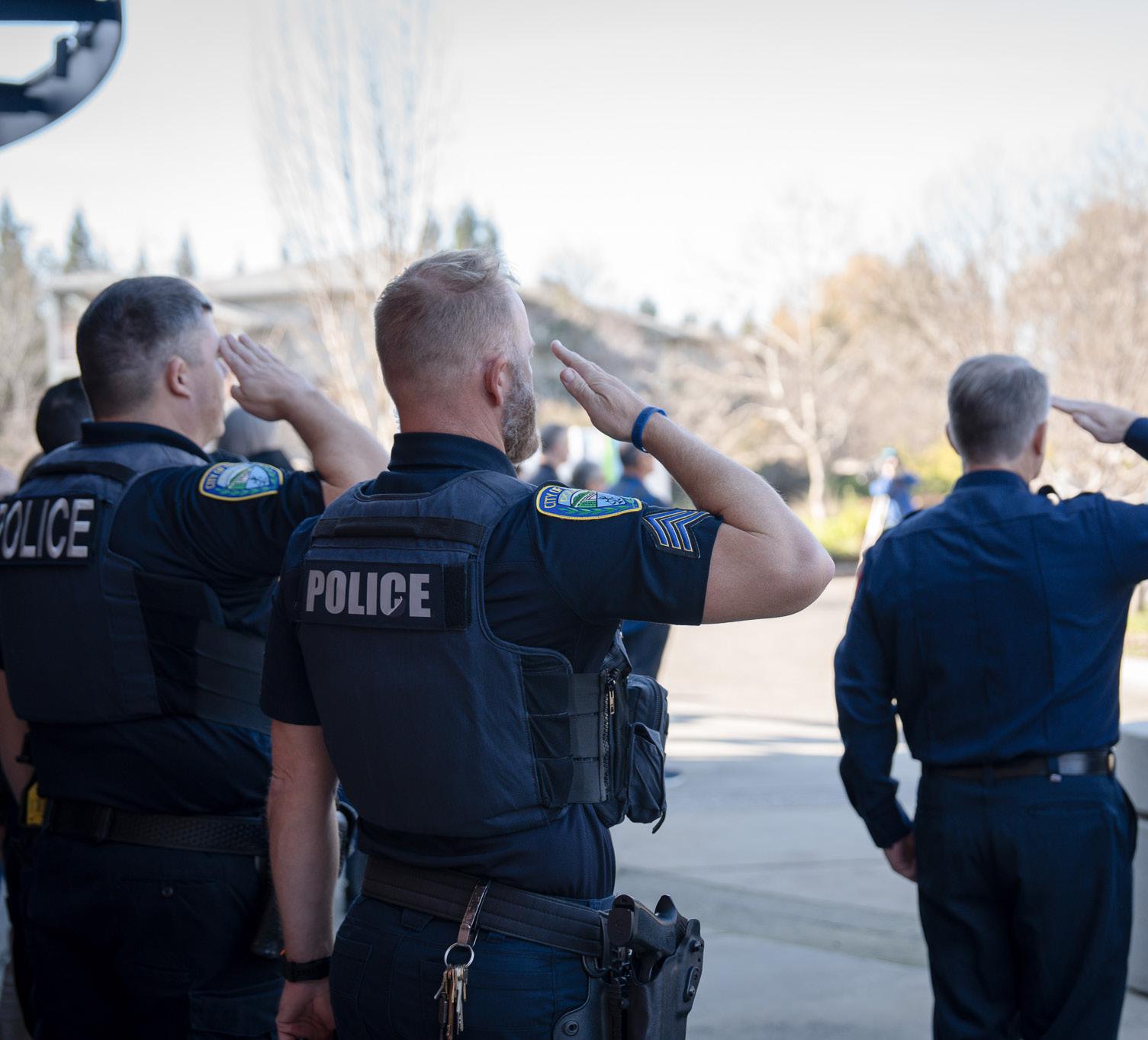

The organization partnered with Davis Parent Nursery School to help fundraise during their monthly bingo game
BY GIA LOOMIS city@theaggie.org
Davis Odd Fellows hosted Second Sunday Bingo, a monthly game supporting various non-proft organizations in Davis on Sunday, Jan. 12. Tis month, Davis Odd Fellows decided to beneft the Davis Parent Nursery School (DPNS). Proceeds from the bingo game were donated to DPNS to support the school’s scholarship fund.
DPNS is a co-op, parentparticipating nursery school that has served the Davis community for over 75 years. Tis month’s game gave participants a chance to support the preschool’s scholarship fund while also competing to win cash prizes of up to $250. DPNS has partnered with Davis Odd Fellows for the bingo game for multiple years, each year reapplying as the game ofers a great source of fundraising for the school.
Davis Odd Fellows is a fraternal organization that focuses on “active community support as well as social activities for members, in addition to the historical traditions.” Chartered on April 12, 1870, the Odd Fellows remains the oldest organization in the city of Davis. As of 2022, its member count has grown to 375 and memberships over the past 10 years have quadrupled, naming it one of the largest Odd Fellows Lodges in
California. Te Odd Fellows not only focus on supporting their members but also largely emphasize community support. Every year, the organization sponsors multiple community events as well as donating to and fundraising with many local non-profts. Te Odd Fellows host multiple annual events that include, but are not limited to:
Breakfast with Santa, the Zombie Bike Ride, the Davis Chocolate Festival and, most recently, their monthly Second Sunday Bingo game.
Second Sunday Bingo is a fundraiser for the Davis Odd Fellows and participating non-proft organizations. Since the bingo game’s introduction over a decade ago, the Odd Fellows have raised over $110,000 for local organizations through events like this one. Each month at their Second Sunday Bingo game, the Odd Fellows choose a diferent non-proft to feature. Numerous non-proft organizations apply every September to secure their spot. Diana Schmiegel, Davis Odd Fellow’s Second Sunday bingo organizer, explained some of the process of becoming a benefciary.
“We meet potential benefciaries in late September through early October, and people apply,” Schmiegel said. “We work with local [501(c)(3)] organizations and we try to choose a variety of groups because we have many diferent types of people that
On Jan. 10, community members participated in a post-holiday season cleanup
SAVANNAH BURGER / AGGIE

BY OLIVIA HOKR city@theaggie.org
On Friday, Jan. 10, the Make Davis Sparkle event was hosted in partnership with Davis Picks It Up, the Davis Chamber of Commerce, the city of Davis Parks & Community Services, the Davis Downtown Business Association and more departments and organizations.
Make Davis Sparkle is a community cleanup reliant on volunteers that occurs four times per year. Te frst cleanup of the year was deemed successful with the help of nearly 35 volunteers who flled approximately 15 trash bags in just an hour and a half.
Jenny Tan, the city of Davis’ director of community engagement, emphasized the signifcance of bringing people together to work hand in hand — making big changes in Davis with the enthusiasm and effort of the community.
“This community belongs to everyone who lives and works here,” Tan said. “So, it’s important to strengthen our connection to it through volunteering in some way to help make Davis a better place to live and work for us all.” Davis Picks It Up is an organization of volunteers within Davis who work together year-round to promote a clean city. Cathie Bullis co-founded Davis Picks It Up three years ago and has continued working to make a diference.
“In January 2022 as the pandemic was starting to wind down, I was walking in my neighborhood and noticed a lot of litter along the streets and felt a strong urge to remove it,” Bullis said. “I grabbed a bag and a litter-picker tool and started to pick up litter and trash along the streets near my home.”
Bullis further discussed the organization and the improvements made over the years.
“I co-founded Davis Picks It Up as a sister group to Sacramento Picks It Up in January 2022. It’s been a huge success and we just keep growing. We have made a visible diference in Davis and it feels very rewarding. We also have many ‘solo’ pickers who clean up the parks, green belts and in their neighborhood which is paramount to our continued success.”
Bullis expressed the immense achievements of participating in community cleanup events. Davis Picks It Up hosts one to three of their own group cleanups per month, along with more frequent smaller cleanups with a few volunteers.
Tese events give us a great sense of community and accomplishment,”
Bullis said. “We get outside for a little exercise, meet our neighbors, share information, laugh, compare notes, talk about the things we fnd and share a common goal by making Davis cleaner and safer.
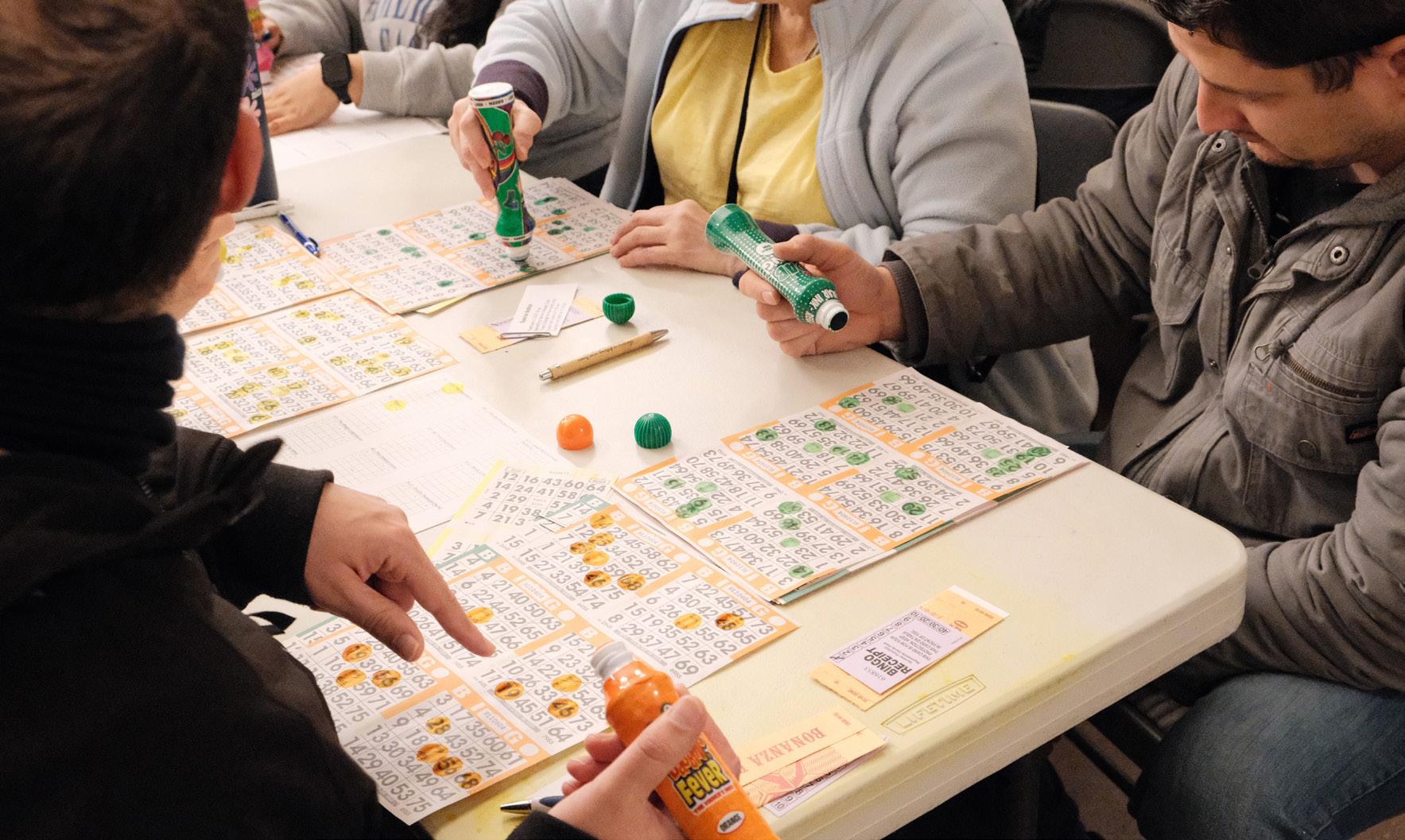
attend our bingo games. So we try to
feature a kids organization, an animal organization and more.”
Te Second Sunday game is a great chance to beneft local organizations while playing bingo and serves as a multi-benefciary source of fundraising for the community.
DPNS Director Becky Montgomery agreed with all of the
benefts the bingo
has
hosting
The Davis Transportation Commission met to discuss greenhouse gas emissions and ways to advance city biking culture
BY YUENJO FAN city@theaggie.org
Te city of Davis Transportation Commission met on Jan. 13 to provide updates on the city’s transportation climate plan while addressing biking culture.
Te Climate Action and Adaptation Plan (CAAP), is the city government’s project to cut back on greenhouse gas emissions and to reach carbon neutrality. Adopted by the city council back in April 2023, the initiative seeks to encourage eco-friendly policies, assess areas of climate vulnerability and engage in community outreach to spread awareness for environmental justice. Kerry Loux, the CAAP project manager, spoke at the meeting and addressed new updates to the climate plan.
Te goals that were directed by the city council were to come up with a plan that attains carbon neutrality by 2040,” Loux said. “Tat is fve years ahead of the current state goal of 2045. We were looking at cost-efective and measurable actions that we could undertake to attain that goal with a diversity, equity and inclusion focus.”
In order to cut back on greenhouse gases, the CAAP also focuses on methods of prevention through connecting with members of the public. To decrease air pollution, addressing carbon emissions will likely require a larger number of the public to direct their attention toward this issue.
“A major focus of the CAAP was to have robust community engagement,” Loux said. “As you are probably aware, transportation is over 80% of our greenhouse gas emissions, and those emissions can be very difcult to address with city policies, because you can’t force someone to get on their bikes. But, we are trying to do things that make those options more palatable and to have incentives with community partners to help people make those choices.”
Te city has already been at work to implement these incentives, including city-led community workshops that seek to educate Davis residents about the importance of reducing greenhouse gases. Yet due to the relative infancy of this climate plan, there will be more complex outreach eforts expected to come in the future.
Te commission also touched on diferent ways that Davis could improve on its transportation systems and culture to assist with the climate project. For a town that prides itself on being bikefriendly, a general sentiment existed in the meeting about the need to encourage more eco-friendly commuting.
After taking a trip to Europe, Schuyler Campbell, a commission member, discussed his observations and mentioned how Davis could take inspiration from European cities to accommodate even more bicycles and cleaner commuting.
“There is one city I visited — Utrecht, Netherlands — which had such excellent bicycle infrastructure that it completely neglected public transit,” Campbell said. “I can palpably see how much a community can beneft from substantial changes to their infrastructure and their policies. [...] It took a city that had a solid biking culture into one that had a dominant one and [also] made the city more
walkable.”
If Davis were to have less public transportation in place of more biking, it would help reduce carbon emissions and assist the CAAP in reaching its 2040 goal. Mark Huising, a commission member originally from the Netherlands, shared his recent experience navigating through Davis with his visiting parents and its contrasts with European biking culture.
“I’ll share, real briefy, a couple things that we did when [my parents] were here, that we used to do when I was still living [in Europe], in that same spirit of what is possible to build on what we already have,” Huising said. “We went to downtown, bought a bike and had dinner. You never see groups of four or fve families with bikes [biking] somewhere together. And it’s so striking to see that not happening because it’s all you see every single day in [Europe].” The commission further emphasized the importance of a transportation system that prioritizes bicycles and pedestrians due to its ability to decrease pollution and create a friendlier city atmosphere. Even with Davis’ prominent biking culture, the commission believes that there is still room for improvements that will beneft city residents while also working toward the CAAP’s goal of carbon neutrality.

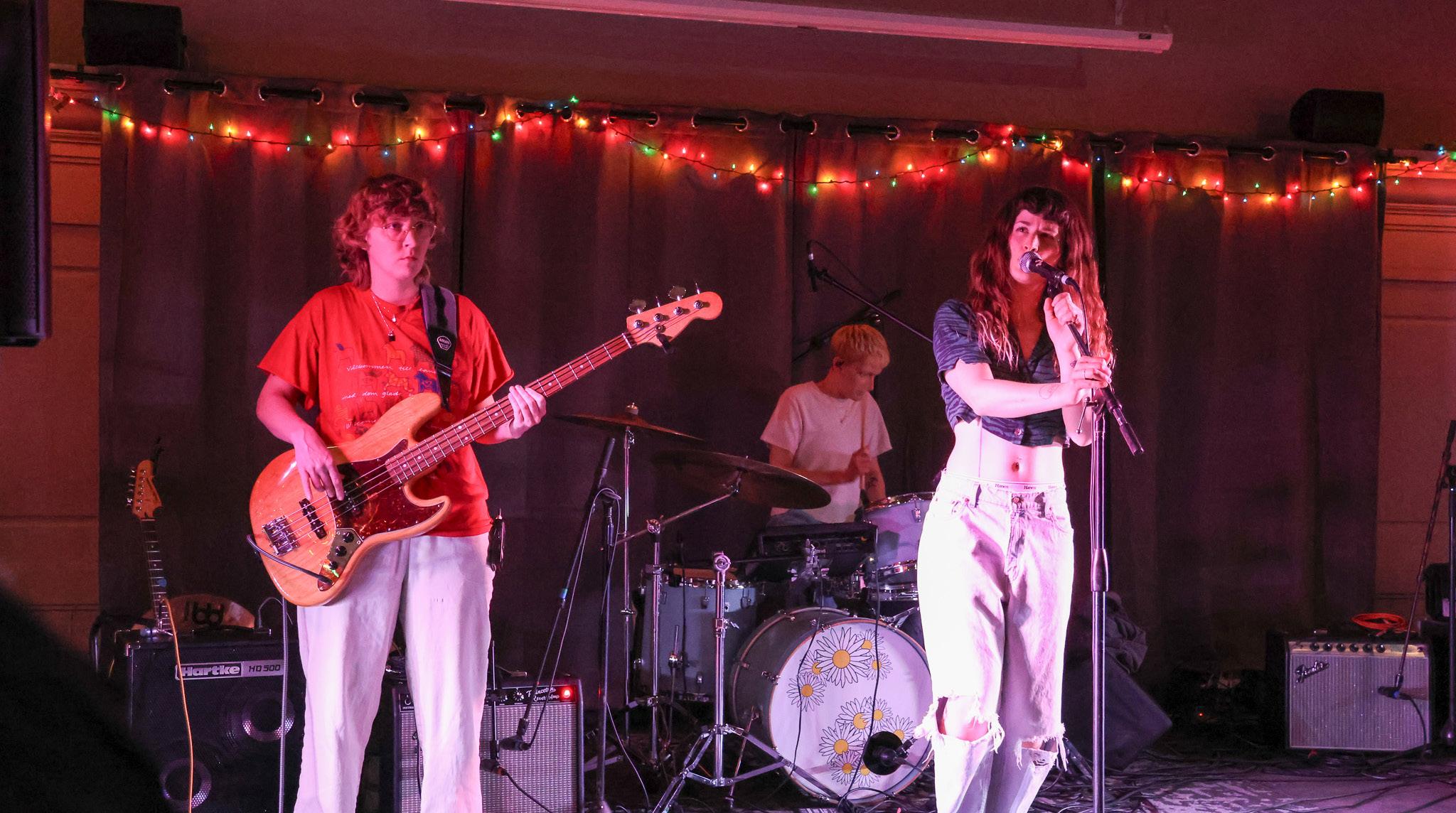
The table discussed the marketing for an upcoming destresser event, and Senator Cohen asserted her openness to collaboration
BY MEGAN PUSL and KHADEEJAH KHAN campus@theaggie.org
ASUCD Internal Vice President
Aaminah Mohammad called the Jan. 16 senate meeting to order at 6:14 p.m. before reading the UC Davis Land Acknowledgement.
First, the table heard a presentation from the Innovation and Research Lab (IRL), ASUCD’s in-house software and research group.
IRL researchers Jeremy Elvander, a third-year data science major, Isabella Gonzales, a fourth-year statistics major, and Rani Saro, fourth-year computer science major, introduced a new internal project request form to the table that allows senators to personally request software and research projects.
Elvander, who also serves as the IRL’s associate director, expressed his goals for researchers.
“[To] work closer with the legislative branch of the senate, creating projects that help you guys with your tasks and allow us to make better connections with other units and commissions within ASUCD,” Elvander said.
Next, the table went over unit and committee adoptions, where each senator requested, or was assigned, to work with individual ASUCD units and committees. After elected ofcer and ex-ofcio reports, and with no public comments, the senate took a short break before returning to discuss legislation. Te senate quickly passed the consent calendar, a group of noncontroversial bills that are not debated over. Tis included Senate Bill (SB)#33, which clarifes the duties of the executive branch as laid out in SB#4.
SB#31, a bill that would allocate $320 to host an event titled “ASUCD Supporting Students in PostInauguration Stress,” was removed at the request of Senator Mia Cohen.
Senator Amrita Julka, who authored the bill, described the event as a way to address student “stress, anxiety and worries” following the inauguration of President Donald Trump. Cohen objected to the use of the phrase “post-inauguration stress,” arguing that
“certain communities on campus may feel unwelcome on campus” if ASUCD took a political stance on the new administration.
Senator Umar Shaikh responded to Cohen’s objection, citing the experiences and fears students from historically marginalized communities underwent during the frst Trump presidency and his belief that ASUCD should take a stance on such issues.
“I think the notion that [ASUCD isn’t] a political institution is kind of ridiculous,” Shaikh said. “It is nonsensical to say that we shouldn’t be political when our identities are politicized all the time.”
Jasthi agreed and supported the language used in the bill.
Te language used isn’t just because it is a political thing in itself but because it afects people with that political lens attached to it,” Jasthi said.
Cohen responded to clarify her stance, stating that instead of opposing the event itself, she believed a change of wording to be less “divisive” to be the best course of action. Additionally, Cohen said there is no intent to change the event’s planning but only its advertisement.
Julka said she was open to making changes to the event’s name, adding that when she advertises the event on social media, the event would be promoted solely as a supportive environment for all students. However, she also said that she would not change the event’s purpose and reafrmed the validity of post-inauguration stress.
“My goal is to provide students with space,” Julka said. “Students are worrying right now.”
SB#31 passed with a vote of 10-13, yes-no-abstain/absent, with Cohen providing the “no” vote.
Next, the senate discussed SB#32, a bill that would establish a ban on single-use plastic products, excluding single-use plastic packaging. Te table discussed concerns surrounding the enforcement of the bill within the Cofee House and regarding current supplier comments.
After Environmental Policy and Planning Commission (EPPC)
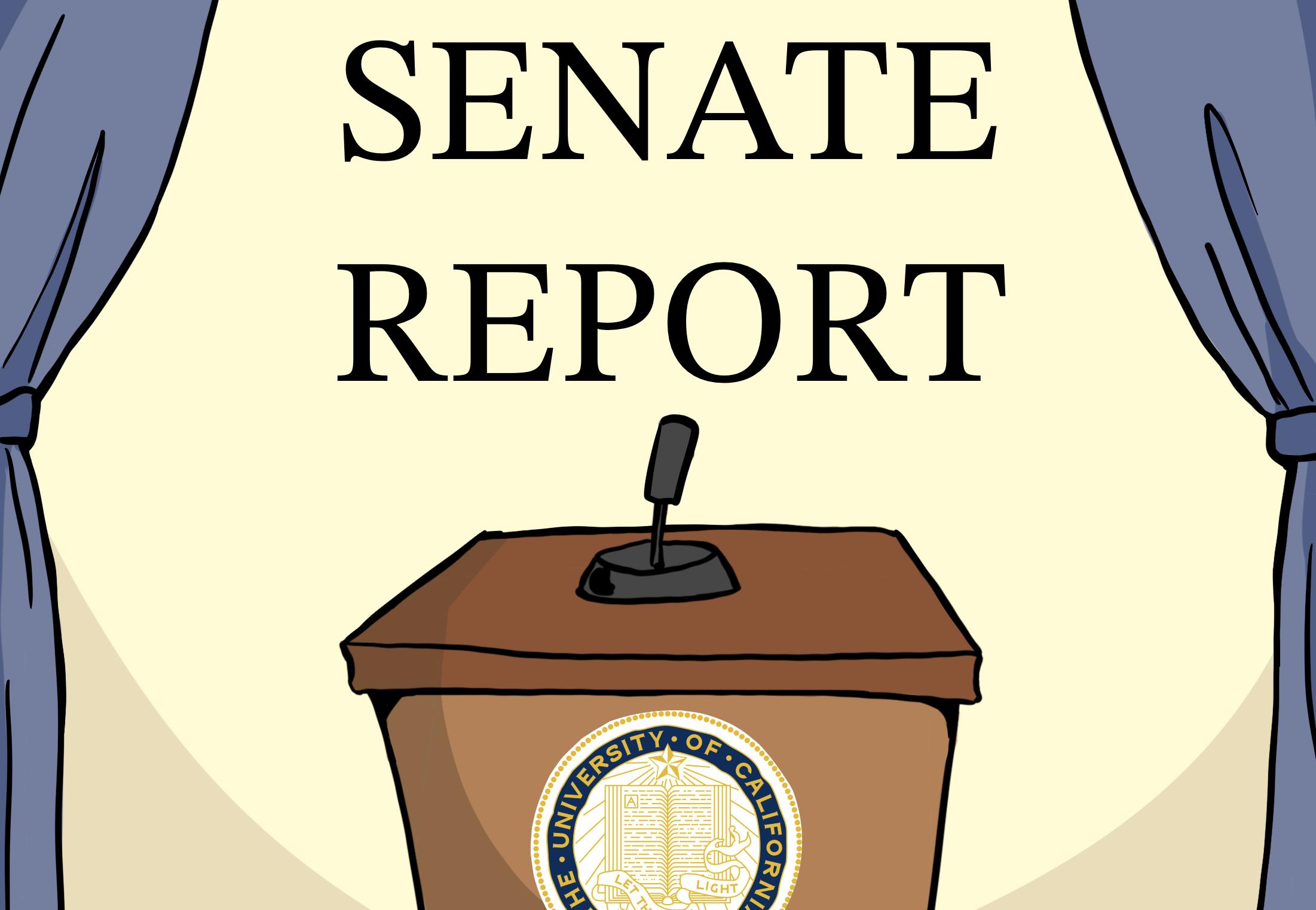
addressed her concerns and informed them that enforcement of the bill would be up to ASUCD’s career stafers, the bill passed unanimously.
Te senate then discussed Senate Resolution (SR)#4, a resolution that called on UC Davis to abide by contractual bidding processes in alignment with California Contract Code and University of California policy. The resolution specifically cited alleged contract violations in the university’s handling of a recently renewed $10 million pouring rights contract (PRC) with PepsiCo.
Te EPPC was under the impression that the UC Davis administration responsible for procurement failed to submit a Request for Proposal (RFP), a document allowing corporations to bid for the PRC. President Gaius Illepeju informed the table that UC Davis did submit an RFP, which would make the resolution factually incorrect, and apologized for not clarifying the situation with EPPC sooner. Given this new information, Kanjamala said she
The new patio includes a steel-framed pavilion, seating options and a heater
BY RORY CONLON
city@theaggie.org
Te Davis Senior Center hosted a grand opening ceremony for its new patio, which was funded by local nonproft and community donations, on Jan. 16. Deanne Machado, the director of parks and community services for the city of Davis, said the patio has been years in the making.
“We frst received design proposals back in 2016, and there have been many iterations to that design since that time,” Machado said. “We were absolutely thrilled to kick of construction of this project back in June of 2024, and it’s really incredible to see the vast amount of work that was accomplished in such a short time.”
Machado pointed out several features included in the new patio.
“It has created a versatile space for gathering in the community, with the concrete patio, the steel pavilion you’re sitting under, the seating areas all around and the heaters [for cold days],” Machado said. “We have catering counters in the back, and while the doors are closed right now, those can
open up and provide for the seamless exit and entry into the indoor areas of the center.”
City of Davis Vice Mayor Donna Neville highlighted the importance of creating community spaces.
“It’s going to be a wonderful place for public gatherings and to develop a really great sense of community,” Neville said.
“It’s really spaces like this that draw us together and enrich and deepen our sense of community, so I’m incredibly excited to see it happen.”
Neville also refected on how her late father, who was a member of the senior commission for the city of Davis, made eforts to get the patio constructed.
“He became one of those people who was really involved in the early days of what would later become this project,” Neville said. “He passed away fve years ago, but I know he would be amazed, because I know that the patio would far exceed what he had in mind when [the city] frst started talking about how the money would be used. I’m just deeply thankful that it’s come to fruition.”
Te city of Davis, along with several local non-profts, including the George and Lena Valente Foundation, the now-
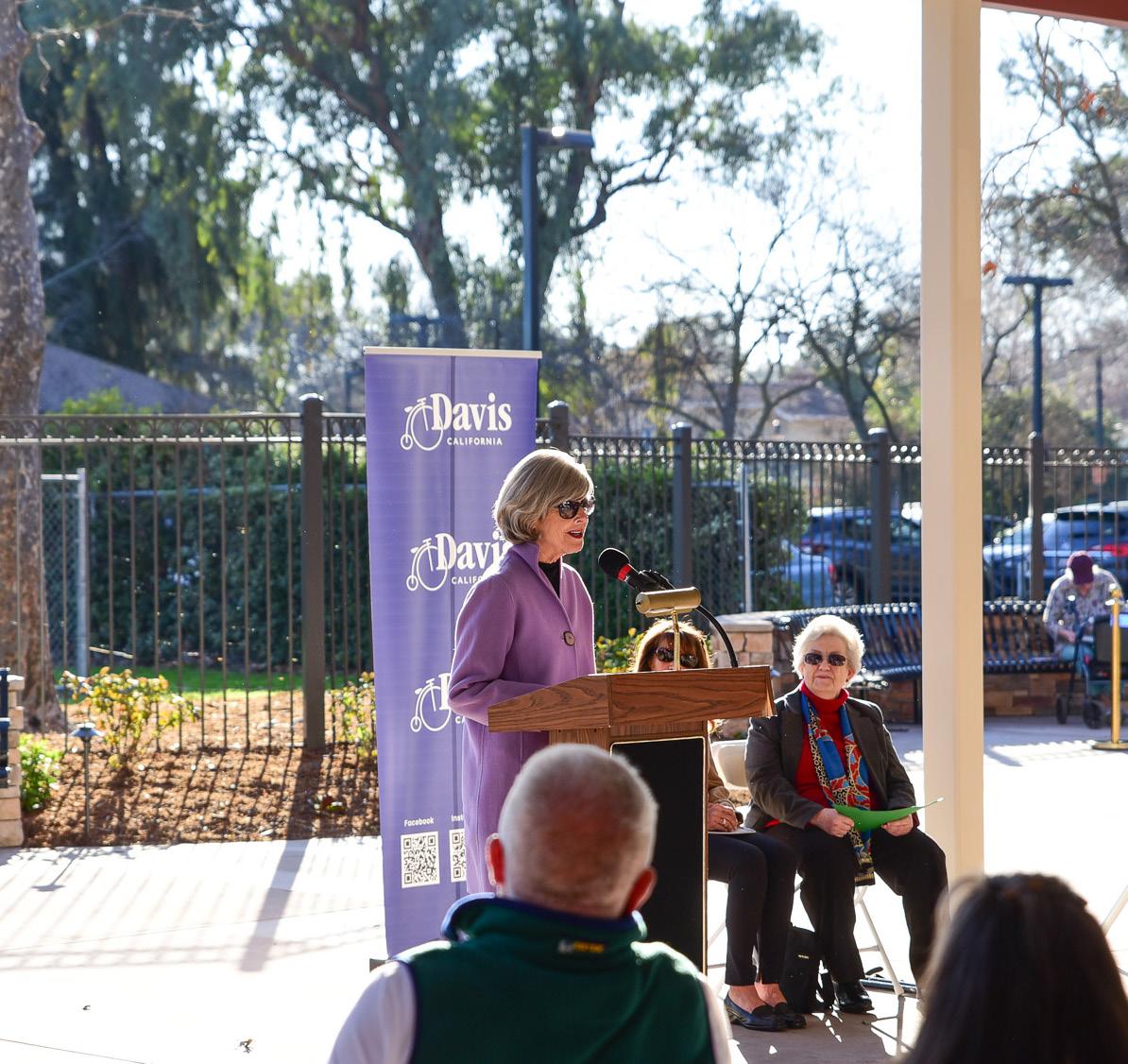
defunct Senior Citizens of Davis (SCD) and the Sunset Rotary Club of Davis, funded construction of the patio.
Lynn Volkerts runs the George and Lena Valente Foundation, which was founded by her parents in 1978 to provide community services throughout the Solano, Sonoma and Yolo counties. She thanked the staf of the senior center, as well as Maria Lucchesi, the city of Davis community services supervisor, and Lisa Miller, a member of the senior citizen commission, for their eforts.
“Lisa [Miller] and Maria [Lucchesi] and the entire staf here have made this home for so many seniors, and I am so full of gratitude for their eforts,” Volkerts said. “Maria, Lisa, you’ve been in my heart since the frst donation in 2000. Te frst time George [Valente] walked into the senior center was in 1999, and the frst thing he wanted in place was a TV room for all the seniors because he was an avid TV watcher. CNBC — that was his focus, his life, his investment plan, and that’s what brought us to fruition here today.”
Elaine Roberts Musser, the legal advisor for the former non-proft Senior Citizens of Davis, said her foundation played a key role in getting the patio built.
Te reason you have a beautiful patio at the Davis Senior Center is because of the imagination and creativity of the non-profit Senior Citizens of Davis,” Musser said. “At a certain point, [President Margot Loschke] and I both wisely decided to disband SCD for good reason, but it was necessary to decide what to do with the remaining funds of the organization, which were considerable.”
Loschke and Musser directed the funds toward the outdoor patio. She said that while they frst envisioned a modest outdoor space for seniors, she now thinks it can serve many diferent purposes for the community.
“Our hope is that this patio can be exploited for many uses, including outdoor tai chi classes, a speaker series we’re working on, intergenerational interactions between seniors and younger folk, perhaps even a wedding or two — who knows?” Musser said.
“We hope this ushers in a new era in which the Davis Senior Center becomes more of a community center where any age is welcome to participate and enjoy what it has to ofer.”
was open to tabling the resolution and SR#4 was withdrawn.
After approving past meeting minutes, the table moved into open forum. Te table discussed the possibility of having most units’ quarterly reports be delivered as written statements and having only a few pre-selected units appear before the table in person, in the interest of time. Others on the table, including Ilupeju, expressed concerns that prioritizing a few units for increased attention would be an unfair practice.
Te table continued discussion on possible ways to make meetings more efcient, though they did not come to a fnal decision before moving to other comments. Afterwards, Cohen made a statement about working alongside the other senators, placing an emphasis on fostering collaboration.
“It’s been an absolute privilege to get to know and work alongside each of you,” Cohen said. “I’d like to take a moment to remind everyone of SR#1, which mentions, and I quote, ‘Bringing community leaders together to fnd common ground is important
for promoting understanding, reducing conflict and ensuring that diverse perspectives are respected within the campus community.’ Tat being said, dialogue, open mindedness and mutual respect are essential in a collaborative setting like this.” Cohen continued to express her thoughts on the matter of openness and collaboration.
“I deeply appreciate everyone who’s engaged with me this far,” Cohen said. “I’m always approachable for questions or collaboration regardless of any preconceived notions.”
Following other brief comments during open forum, the senate entered into an unscheduled closed session at 8:24 p.m. without public notice. An ASUCD ofcial close to the matter, speaking on the condition of anonymity, confrmed that the closed session was a “surprise” to several members of the senate table and was planned ahead of time by Ilupeju. Te closed session lasted until the meeting’s adjournment at 9:05 p.m.
How Davis’ local health food store showed support for the vegan community
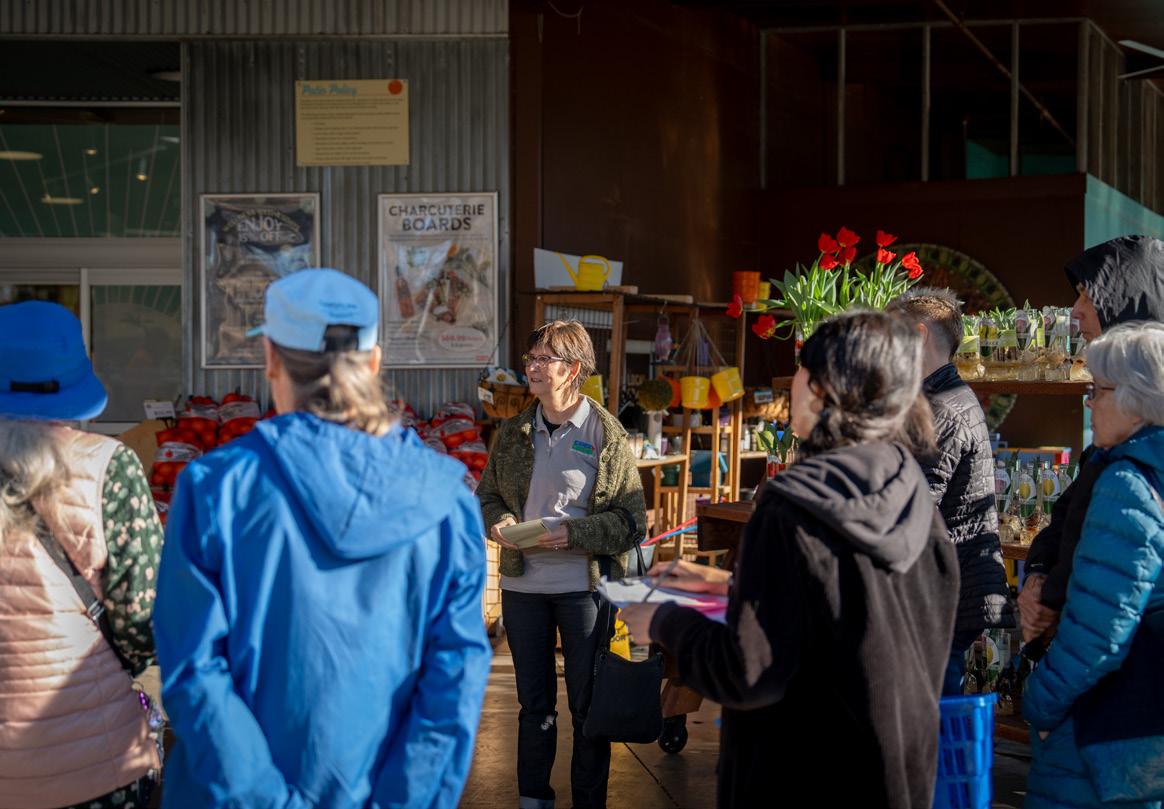
BY PIPER AWEEKA city@theaggie.org
On Sunday, Jan. 12, the Davis Food Co-op, a community-owned and operated grocery store known for its wide array of health foods, held a tour of its establishment to highlight vegan products. In a college town where the diaspora of inhabitants varies greatly, food preferences are inevitably just as diverse. Anna Lopez, an education and outreach specialist at the Co-op, explained the reasoning behind the event.
“At the Co-op, we support a diverse range of lifestyles and dietary preferences, recognizing that everyone’s journey with food is unique,” Lopez said. “Te idea behind the vegan food tour was to highlight the wide range of vegan products and options available at the Co-op, making it easier for vegan shoppers, or those interested in plantbased eating, to discover new foods and feel confdent navigating our store.”
By providing experiences like Sunday’s tour, the Co-op is able to reach the community that, in turn, operates the store. One of the main reasons the Co-op caters niche items to its shoppers is that the shoppers largely determine what products the store carries, according to Lopez.
“Many of our oferings, especially new items, come directly from customer suggestions, ensuring that our shelves refect the needs and preferences of our community,” Lopez said.
For Lopez, the food tour was an event with meaning beyond a mere interest in plant-based diets.
“I have been vegan for about eight
years now, so this is something I’m personally passionate about,” Lopez said.
Though Davis is by no means recognized as the vegan epicenter of California, the store’s focus on providing ethically sustainable food choices is one that residents, beyond just vegans, are able to rally around. In a world where the impacts of climate change are increasing rapidly, having food options that are sustainably sourced is one method of improving the environment for those who have the fnancial means to consume them.
“While we’re not exclusively a vegan store, we’re strong proponents of sustainability and ethical choices, which align closely with the values of a plant-based lifestyle,” Lopez said. “Our commitment is refected in our extensive selection of plant-based products, partnerships with ethical producers and efforts to provide education and resources for those exploring or committed to plant-based living.”
Zoe Vejar, a trainee at the grocery store, remarked on the success of the event.
“It seemed like it went really well,” Vejar said. “Tere were a good amount of people. People were buying the stuf that they were trying.” Lopez touched on the event as an example of the store’s ffth cooperative principle: education, training and information.
“[Te food tour] demonstrated how the Co-op is a place where everyone — regardless of dietary preferences — can shop, learn and contribute to building a stronger, more inclusive community,” Lopez said.
For the sake of student mental health and well-being, college assignments should only be due on weekdays
BY ELLIE NOH
eenoh@ucdavis.edu
“Assignment due Saturday at 11:59 p.m.”
Tis is what some students might see on Canvas after anticipating a somewhat restful weekend break. In my personal experience, I’ve had many assignments due on Sundays, week after week. While I understand why a few professors may opt to make this choice, having multiple assignments due on the weekend can be quite a daunting task for students who have a full academic workload.
With regards to higher education, I understand that the concept of being a full-time college student entails a chance for high school students to transition into the fast-paced “real world” lifestyle. However, I still continue to view weekends as a chance to achieve more balance in my life after a long week of classes and other assignments due throughout the week. If multiple looming deadlines are approaching on a weekend, it can cause a “day of relaxation” to be a day of working and fnalizing assignments.
Students trying to achieve more of a balance on weekends does not necessarily entail just relaxation, either.
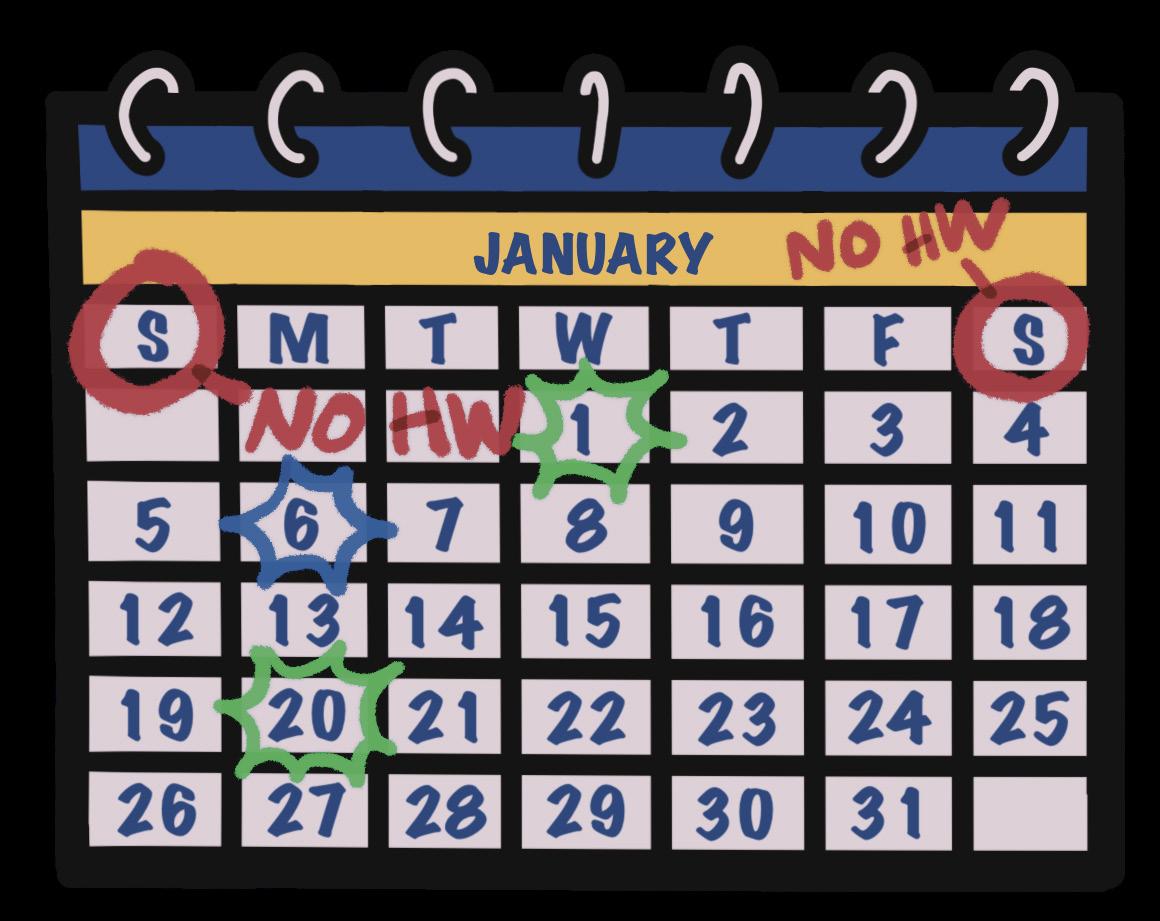
It can also mean spending more time on extracurricular activities and developing pre-professional experiences. I have fve meetings on the weekends, and this is just one example of my schedule that can hinder my ability to give a lot of my time to assignments due on the weekend. Other examples of weekend activities can be athletic meets, academic tournaments and more. Even with efective time management, there are always weekends that will have packed schedules — with commitments that are often out of our control.
Considering students’ busy
EMILY TRAN / AGGIE
One microhabit for man, one giant habit for mankind
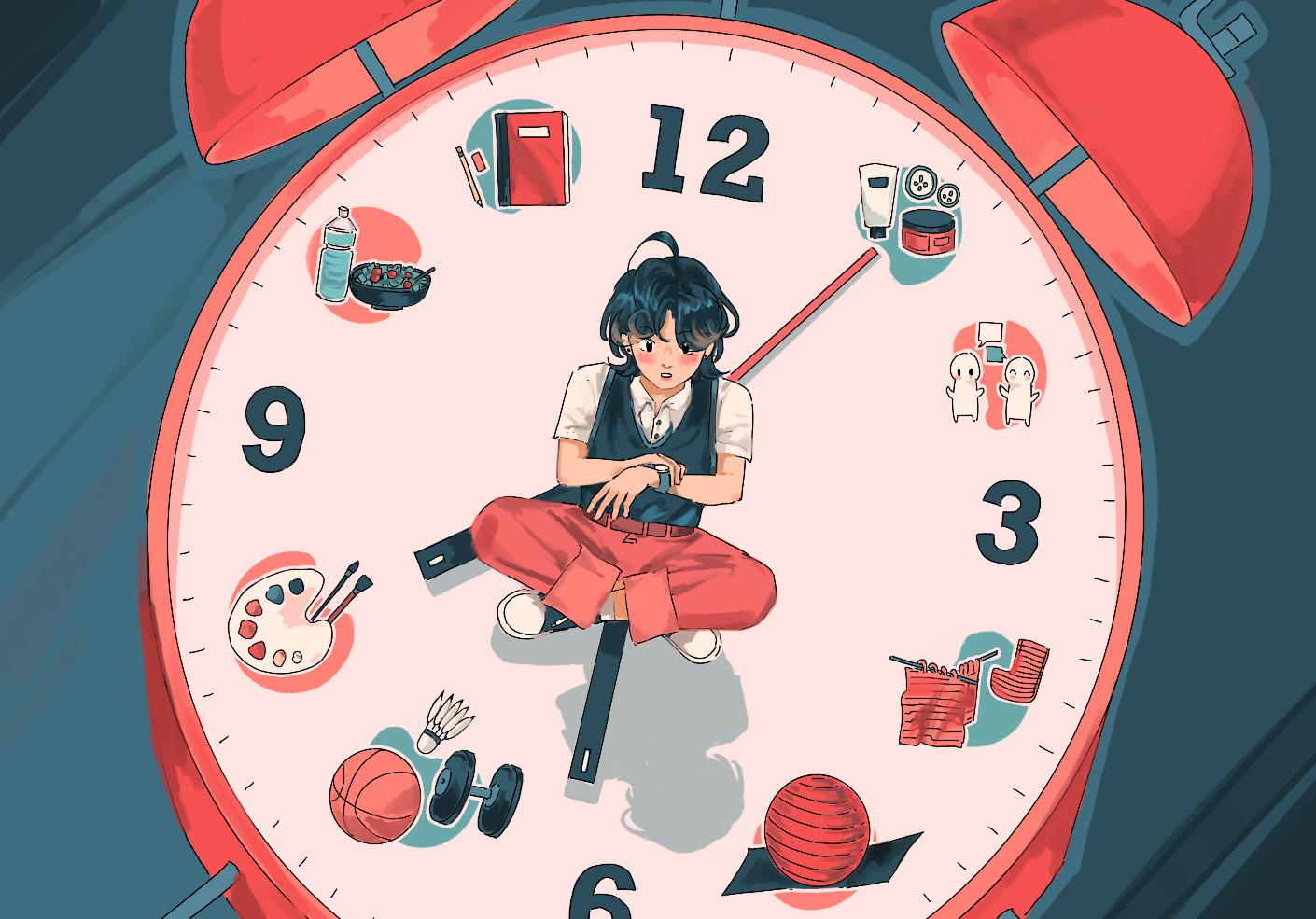
schedules, a student’s academic career can almost be considered a full-time job — which traditionally only allows employees to work from 9 a.m. to 5 p.m. on weekdays. While the workloads can difer, students should be able to treat weekends as a break from their academic stress. Additionally, some professors prefer to not respond on the weekends and frequently reiterate to students that they should not expect a response from them.
NOWEEKENDHW on 11
Long waitlists, limited class sizes and late pass times have caused UC Davis students to question whether they will graduate on time
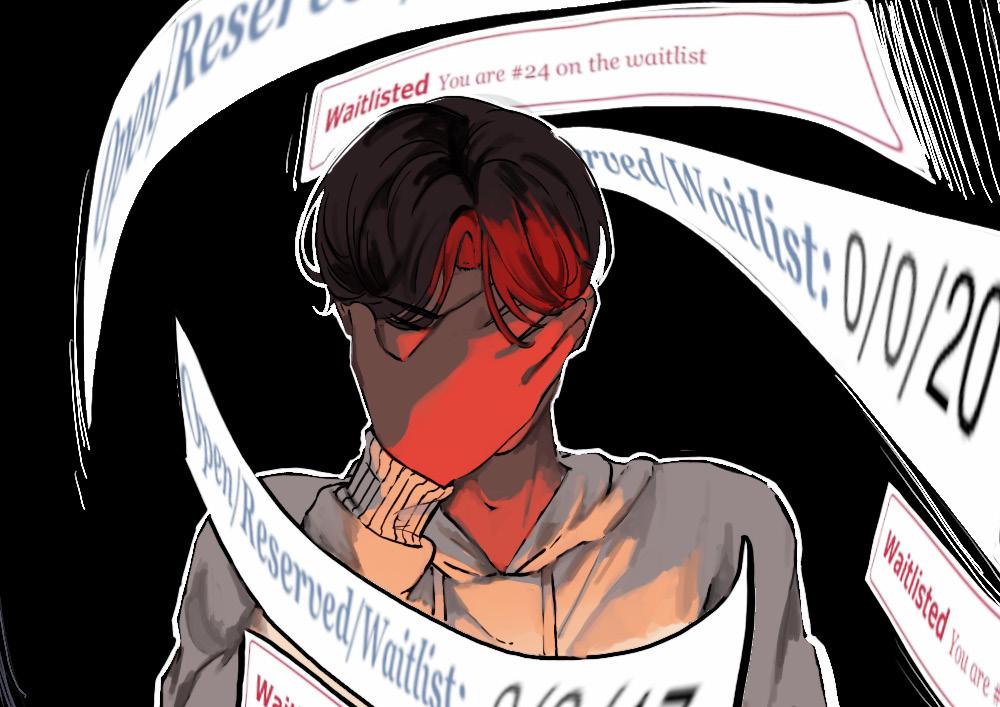
BY JHANA RHODES
jsrho@ucdavis.edu
Knock, knock. Who’s there?
Graduate. Graduate who?
I may not graduate on time.
And it isn’t because I have to retake a chemistry class I failed this previous fall quarter or because I changed my major for the third time — it’s because I didn’t click the “register class” option
on Schedule Builder fast enough. Tat joke was hilarious, right? Well, if you found it amusing, it’s probably because you either have an amazing sense of humor or you’ve never had the privilege of being on a waitlist. If it’s the latter, I will gladly paint the experience for you. Imagine this: A jarring shrill wakes you up at 5:30 a.m. Disoriented and groggy, you fumble for your phone in an attempt to silence the alarm. However, you stop yourself when you remember — it’s time. Suddenly having the energy to power a whole city, you jolt out of bed, race to your laptop, and
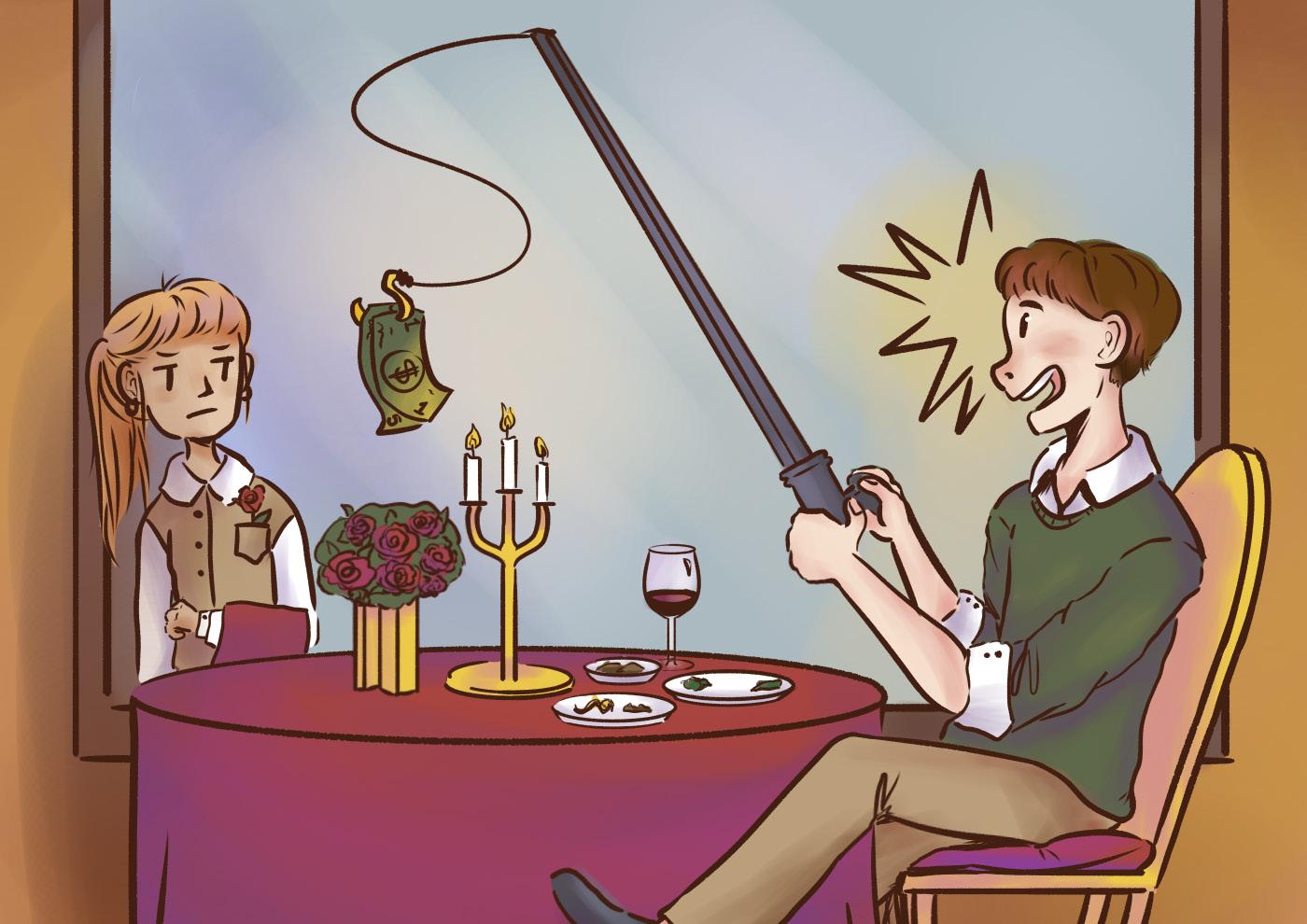
BY TARA ROMERO
If
routine. Yet, every morning, they turn that iPad around and expect me to give them a dollar for their “can-do” attitude! I already spent $8 of my parent’s money on my very simple and reasonable drink order, and then I am socially obligated to give them another couple of dollars for “kind service.” How about you kindly keep your iPad on your side of the counter?
In fact, tipping culture has gotten utterly outrageous. Apparently pouring a cup of cofee is a service worth $2 in your pitiful tip jar. What’s next? Tipping the pizza delivery guy? Te hotel maid? Te tattoo artist? Absolutely not.
Don’t get me wrong, I respect food service workers very much. I have never once caused a scene (unless provoked). All I am saying is that most of them
already make minimum wage. Tey already get $16 every hour, and those baristas want to take my money too!
Don’t they know how expensive my groceries are? Now servers, that’s a diferent story. Let the record show that I am very fair, and I do consider tipping when I dine in at a restaurant. However, just like every other job in the world, they have to earn their money. I simply decide whether or not they “earn” their 5% tip. Let me walk you through a horror story from the last time I ate out. 14 of my closest friends and I went into a local restaurant for my boyfriend’s birthday brunch. Tey told us the wait time for a party of our size would be 10 minutes. 10 minutes? Can you believe that? I graciously pointed out that I saw some open tables so surely we wouldn’t have to wait. Yes, the place looked pretty packed, but after a bit of convincing, the host sat us.
Tis is where bad goes to worse. After sitting, our server did not come to greet us for 15 whole minutes! I don’t know what the hold-up was, but that was strike one. Once our server fnally appeared, we
open the tab to the only thing you’ve been thinking about all night: Schedule Builder.
As you watch the clock move up second by second, more sweat collects on your upper lip. Your hands are shaky, your mind is racing and you think, “Will I make it?”
It’s 5:59 a.m., and, with bated breath, wishful thinking and the speed of light, you click the register button — only to realize you’re number 42 on the waitlist and your dreams of graduating in the spring are crushed, stomped on, completely gone. I mean, is pursuing a degree even worth it?
Long story short, I’m catastrophizing. And although I’m being a bit hyperbolic, it doesn’t change the fact that signing up for classes at UC Davis can be extremely frustrating.
While being on a waitlist itself can be anxiety-inducing, the bigger problems start when instruction rolls around. In one of my classes, waitlisted students sat on the foor because there weren’t enough seats. In another class, there are around 20 students lined up at the end of the lecture to beg for Permission to Add (PTA) codes. In my short time at Davis, if there’s one thing I’ve noticed about the students, it’s that we are incredibly determined.
WAITLISTS on 11
naturally ordered bottomless mimosas for the table. I’m not sure about you guys, but I was led to presume that these mimosas would in fact keep coming — given the term “bottomless.” However, our server clearly did not know the meaning of the word as my boyfriend was cut of after his 12th mimosa. Strike two. Not to mention, she took a bit too long bringing over pitcher No. 7 (which was strike three, if you’re following along).
Listen, I know this is not my server’s fault, but I do have reason to believe my boyfriend was experiencing a bit of food poisoning. By the end of the meal, he was slurring his words and could not stop throwing up in the bathroom. Te server did one thing right that entire meal, and she thankfully called him a paramedic.
So, I went to pay for my boyfriend and I’s share of the split check — we had 11 separate checks of course. We told her at the end of the meal while my boyfriend was being stretchered out into the ambulance.
Here’s why I’m telling you all of this: After the horror show that unfolded before us, this server obviously did not earn my tip. I complained to my friends and showed them the frowny face I drew on the tip line. To my utter shock, all of them seemed really upset with me — saying something about her being the only server and her “saving my boyfriend’s life.”
Tis is why I turn to you, my fellow students. I cannot be the only person on campus who is over this whole “tipping” charade. I’m sure all of you, like me, are reasonable individuals who are fed up with tipping out.
Disclaimer: (Tis article is humor and/or satire, and its content is purely fctional. Te story and the names of “sources” are fctionalized.)
BY ABHINAYA KASAGANI akasagani@ucdavis.edu
When you get in the car, you fasten your seatbelt without having to be told — habits are formed through consistency. Contextual cues (getting in the car) are followed by corresponding actions (fastening your seatbelt). It might be tedious to navigate these habits with deliberation or care, but over time, the energy you would have previously required for this task is outsourced.
Te possibility the New Year brings makes us impatient, and we grasp recklessly at the prospect of endless change. However, in times like these, it is extremely helpful when the advice you receive is instructive. So, I discussed this at length with everyone I have ever known and asked what, to them, is the new “one true habit.” Teir answers were as follows:
1. Don’t use your phone as an alarm. Wake up with the sun.
2. If No. 1 seems impossible, try to at least avoid hitting the snooze button. Place your alarm in a far corner of your room or make the ringer sound extremely painful.
3. No phones at the table. Challenge yourself to be bored.
4. Print out required readings. Tere is so much lost when you use your screen, not to mention the extra eye strain.
5. Try to drink less soda and more water. Resist the urge to pump yourself full of sugar.
6. Try to put yourself out there more. Take more initiative and start a task right as you think of it.
7. Make time for yourself. Go out alone. Go on dates. Make friends. Do not close yourself of to things. It is easy to birth and nurture stagnancy.
Participate in more in-person conversations.
8. Eat a banana when you are stressed.
9. Take the stairs. Movement is crucial to your well-being. If you usually resort to taking the elevator — not because you’re inactive but because you’re late — work on doing something about that.
10. Put your phone on grayscale to reduce your screen time.
11. Investigate all of the ways you can remove capitalism from your life.
12. Write down one thing you are grateful for at the beginning and end of each day. Note what has changed.
13. Craft more — hands are meant to mold and produce. Nothing is bad if you make it wholeheartedly and with care.
14. Focus less on things that come easily. Doing the work is admirable and nothing to be embarrassed about. Want things proudly and commit to working on them. It is perfectly fne to be bad at something you want to be good at. Good things take time.
15. Learn, relearn and fnesse. Tis is the age for trial and error (there is never truly an age, but you might get less inclined to try as you get older). Read more, learn more and apply yourself. Practice makes perfect, and there is nothing sweeter than the fruit of dedication.
16. Listen and observe. Talking less about others, or even yourself, is a good goal to have. Watch more closely. Life can be lived slowly. Take everything (academics, career and any other longterm goals) less seriously. At the same time, take everything (health, friendship and self-care) more seriously.
17. Catalog things.
18. Be kind. What is the point of anything if you forget this?
The ‘reposter’ as an antihero
The myth of social media as a tool for protest
JASON XIE / AGGIE
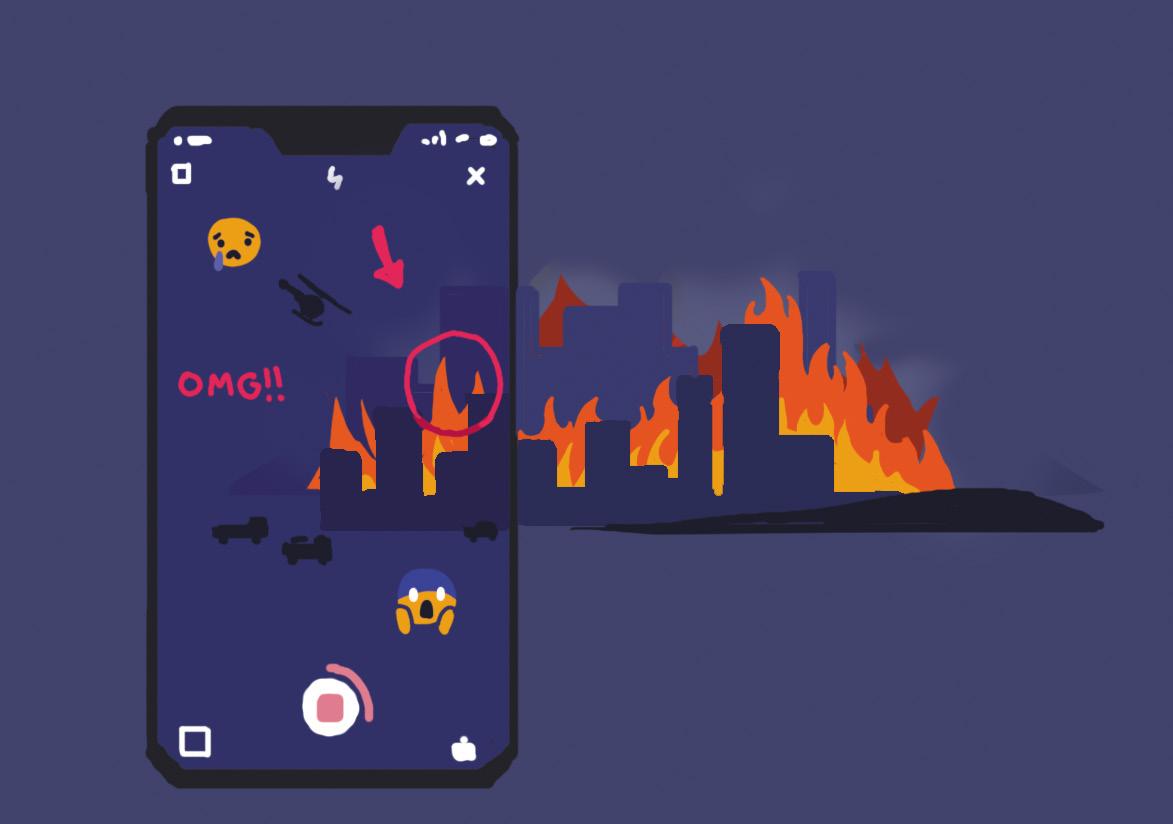
BY VIOLET ZANZOT vmzanzot@ucdavis.edu
If I am being honest, the world has felt all too biblical recently: plagues, famine, war and, now, fre. I’m pretty confdent I am not the only person who feels like things have been of; In fact, I think it may be one of the only things we can probably all agree on with today’s turmoil — things are odd, maybe even eerie. What I fnd particularly interesting about it all is the way people deal with this new kind of “out-of-theordinary” version of normal, especially the various ways people have decided to protest against it. The kind of protest that really seems to “get my goat,” if you will, is the kind that exists purely on Instagram Stories. Using social media as a means of vocalizing individual opinions has only led to misinformation and division. It is to act publicly while simultaneously hiding. What happened to the good, old-fashioned collective frustration that drew people out to the picket lines? It is clear that collective action on social media can, in some way, be efective. I point to celebrity JoJo Siwa as an example. In December of 2024, a majority of the TikTok community agreed to not like her posts. Te whole sensation unintentionally proved that a collective action on social media can be at least relatively efective — the star had videos with millions of views, but only thousands of likes. Tis only
occurred because most people were able to agree on a feeling and an action — an agreement which political and social issues have failed to inspire recently. People have taken it into their own hands to repost and express their personal feelings as a form of activism. But how can protest be efective if it is not collective? Furthermore, because of the ever-so-hasty news cycle, which has exploded the number of news sources and sensational media available, independently promoting one’s own feed only further creates a disconnect between the larger collective (a group that is necessary for action).
Te argument could be made that social media has allowed for a space to share opinions and learn new things. I, for one, cannot deny that I love to pull out the expression: “I found this somewhere.” Te “where” I am referring to is, of course, TikTok. But when it comes to forming opinions and then sharing them to build a personal platform, the 30 seconds spent on an Instagram Story are not the answer. Unfortunately, the temporal nature of social media and the overwhelming amount of both fake and heavily biased news has lessened the ability of a “repost” to be an efective voice for the masses. If everyone is yelling (or posting) something diferent, then no one can be heard.
WRITTEN BY THE EDITORIAL BOARD
It has been a strenuous last week, with news that sounds like it’s straight out of a dystopian novel. On Jan. 18, TikTok was briefy banned following a Supreme Court decision, only to be abruptly brought back the next day with a message thanking President Donald Trump. Not two days later, the United States withdrew from the World Health Organization and Trump signed a wave of dangerous executive orders. Trump’s inauguration is starting what feels like a new period of oligarchy in the U.S.
Te Editorial Board condemns this new presidential administration and hopes that you remain vigilant in these trying times. As more developments happen day by day, it’s important to remind yourself that what is happening in our country is not normal — there is no need to water down the severity of this far-right extremism. Even former President Joe Biden used the language of “oligarchy” in his farewell address, warning of the upcoming centralization of powers in the U.S.
On one of the days preceding the inauguration, TikTok was temporarily shut down. Many have suggested that this feels politically calculated and may have been an intentional ploy to manipulate American users. Ironically, Trump signed an executive order in August 2020 to ban TikTok, claiming the app was a danger to national security. It is unsettling that anyone would give Trump praise for taking credit for solving a problem he started.
Tese risks are real,” the 2020 executive order reads. “Tis data collection threatens to allow the Chinese Communist Party access to Americans’ personal and proprietary information.” Without shock to anyone, Trump lied and changed his mind, now championing TikTok’s return for millions of Americans.
“Frankly, there are a lot of people on TikTok that love it,” Trump said in an interview with CNBC. “Tere are a
lot of young kids on TikTok who will go crazy without it. Tere are a lot of users, a lot of good and there’s a lot of bad with TikTok.”
Time and time again, Trump has proven himself to be a conman full of contradictions. His credibility can’t be trusted and, with a list of unconstitutional executive orders that violate basic rights, his presidency is of to a dangerous start.
One of the frst executive orders Trump passed on his frst day back in ofce was a long-time campaign promise — efectively ending birthright citizenship. While this constitutional right is guaranteed by the 14th Amendment, this executive order is set to take efect on Feb. 19. Tis unconstitutional move further vilifes undocumented Americans and completely deconstructs the conception of the so-called “American Dream.”
Tere’s no beating around what these policies are actually about — racism and the dehumanization of Latinos and immigrants. In response, 18 states, the District of Columbia and San Francisco have fled a lawsuit against Trump for this action. It remains to be seen what the future of birthright citizenship will be, how extensive this executive order will reach and how this policy will be enforced. What is certain is that life has become even more dangerous for immigrants in an already-dangerous country.
Beyond this, the White House’s Spanish website has been taken down and Trump has even declared a national emergency at the U.S.Mexico border. Tis could potentially allow Trump to access federal funding and the ability to use the military and National Guard at the border, according to Te New York Times.
Te government website https:// reproductiverights.gov/, which was used to provide essential information about reproductive rights and access, has gone ofine following Trump’s inauguration. Although it remains unconfrmed if this was an intentional move by the Trump Administration,
it signals the administration’s ongoing eforts to restrict women’s bodies and reproductive healthcare.
Another bizarre action taken on Trump’s frst day back in ofce was passing an executive order titled “Restoring Names Tat Honor American Greatness,” which calls for the Gulf of Mexico to be renamed the “Gulf of America.” While these comments are sometimes written of as so ridiculous they must be satire or said in jest (like Trump suggesting the U.S. annex Canada, Greenland and the Panama Canal), this rhetoric must be taken seriously. Tis spirit of American manifest destiny is a danger to other nations and to us, so we must call it like it is — authoritarian.
Not only do these executive orders signal a dangerous precedent for the country, but the inauguration itself symbolized the U.S.’ leaning toward being outwardly oligarchical. Standing in front of the incoming presidential cabinet at the inauguration were the wealthiest people in the world: Jef Bezos, Mark Zuckerberg, Elon Musk and Chief Executive Ofcer of Google Sundar Pichai. Together, they are worth nearly a trillion dollars.
Musk, the now administrator of the Department of Government Efciency, sparked controversy during a speech at a post-inauguration rally where he gave a one-armed salute that appeared similar to a Nazi salute twice.
“My heart goes out to you,” Musk said as he gave the salute. “It is thanks to you that the future of civilization is assured.”
While Musk avoided fully denying this was his intention, it’s clear this salute along with the political extremism of the administration echoes far-right movements from history. Tis gesture also has been embraced by many white supremacists and other hate groups. Some examples of this gesture being accepted include: a White Lives Matter group celebrating the post on Telegram, conservative commentator Evan Kilgore saying “we are so back” and more, according to AP News.
“He’s still blowing it of as though
Do social media users wearing his profile picture really know his heart?
BY MADISON SEEMAN meseeman@ucdavis.edu
Snoopy is everywhere. He’s on the face of chocolate bars, the front of fashionable tote bags, the shelves of CVS and all over my X feed. At 84 years old, Snoopy might just be the hippest boomer around. But as Snoopy thrives at icon status, it’s become clear that some social media users are fattening his character into something that can ft picture perfect into their profle pictures. Tese new Snoopy stans simply don’t know him like I do.
On Oct. 4, 1950, Snoopy made his debut — perfectly friend-shaped. He took some time to grow into the traits that became his trademarks: his doghouse and his friendship with Charlie Brown. He didn’t even achieve bipedal status until 1957, but it was clear that he was loveable from day one.
Today, he’s all over my social media timelines. My feeds are full of Snoopy wrapped in his iconic red pufer or tucked snuggly into bed. He’s happydancing in profle pictures, DJing in Charli XCX memes and dancing to ABBA — always innocent-looking, docile and cutesy. And hey, I’m not complaining. But as I scroll through my feed, I wonder if these so-called “Snoopy stans” are looking any deeper than foppy ears and silly smiles. Have they even watched the Charlie Brown holiday specials?
Tere’s something missing in this modern portrait of the most iconic beagle on the planet. He’s too cute, too perfect. His X presence lacks key traits — a rejection of his mischievous heart. The real Snoopy is no perfect angel. While undeniably adorable, he’s a complicated dog! And, like an onion (or like Shrek), there are layers that reveal, at the center, a healthy amount of mischief in Snoopy’s heart. Hidden
inside that iconic red pufer are evil plans. Real fans know but love him anyway.
He’s a blue blanket stealer, a prankster and a little stinker. He steals kisses from Lucy and he tortures his companions with his cold, cold nose. He’s a tickle monster, even. He’s a maniacal laugh in very, very cute packaging.
He’s not always as peaceful as those his fair-weather fans might portray either. Snoopy is plagued by a philosopher’s mind. Existential thoughts, like, “I search the sky and fnd no meaning,” hide behind those misleadingly simple eyes.
He’s ambitious, too, as booked and busy as Barbie. Are those social media users hiding behind his face even familiar with his career as an astronaut? A surgeon? A writer? An attorney? I hope they at least know of his service in the First World War, but with these new-gen fans, who can tell?
Editorial Board
CHRIS PONCE Editor-in-Chief
ALYSSA CREVOISERAT Managing Editor
MADISON PETERS Campus News Editor
HANNAH SCHRADER City News Editor
MAYA KORNYEYEVA Opinion Editor
ZOEY MORTAZAVI Features Editor
ANA BACH Arts & Culture Editor
MEGAN JOSEPH Sports Editor
KATIE HELLMAN Science Editor
JENNA LEE Photo Director
ARIANA NOBLE Layout Director
LANHUI ZHEN Design Director
JOANNE SUN Social Media Manager
AARON POTTER Website Manager
CASSIDY GILLIS Distribution & Outreach Director
TIFFANY HE Copy Chief
JENNY DYE Copy Chief
SAMUEL RUIZ Translation Director
ILEANA MERAZ Translation Director
LAURIE PEDERSON Business Development Manager
it wasn’t something serious,” Kurt Braddock, a professor from American University, told AP News. “I know what I saw, I know what the response to it was among elements of the extreme right including neo-Nazis, and I see what the reaction is now. And none of it is a laughing matter.”
It’s clear that we are living in
He’s smug, he’s impish and evidence points to the fact that he may not even know Charlie Brown’s name. Tat’s his best friend!
But real Snoopy fans — myself included — support Snoopy’s rights and wrongs. We’ve sat through the holiday specials, we’ve met his family, his frst owner. We know that behind that cute face is a whole lot of mischief, and behind that mischief is a heart of gold. Can we really blame casual Snoopy enjoyers for their ignorance? Snoopy is loveable at every level and it’s impossible not to be charmed. Maybe there’s no crime in being a surface-level Snoopy lover.
But maybe there is. To my fellow (real) Snoopy fans: Stay strong and spread the good word. May Snoopy be with you.
Disclaimer: (Tis article is humor and/or satire, and its content is purely fctional. Te story and the names of “sources” are fctionalized.)
unprecedented times full of dangerous propaganda and executive action. Te Editorial Board urges you to be aware of the new administration and the changes it brings — be vigilant, take care of yourself and do not accept any of this as the new normal. Any way that you are feeling right now is not an overreaction.
The dangers of an “all or nothing” mindset

BY MOLLY THOMPSON mmtthompson@ucdavis.edu
or read 30 books before the end of the year. Tere’s an initial spurt of motivation from novelty and the compelling idea of a beautiful, new life created by new habits. But before too long, the schedule gets flled up. It’s hard to get to the gym on cold mornings, ice cream has never sounded better, 8 a.m. lectures are honestly just unrealistic and the frst book has yet to be opened past the prologue. It sounds like it’s time to give up. As a society, we place a lot of emphasis on the “go big or go home” all-or-nothing mentality that fuels this kind of thinking. If I can’t accomplish my goals as I initially set them, if I can’t complete something in its totality, I might as well not try at all, right?
Wrong — there’s a lot to be said for doing something partway. Take the example of aiming to transition from a conventional omnivore diet to a vegan diet: an admirable goal. Maybe it’s for environmental sustainability, maybe it’s for personal health, maybe it’s for ethical reasons, but if I’m used to eating animal products and they’re part of the diet I rely on (physically and emotionally), it’s going to be really intimidating to upturn how I grocery shop, meal plan, cook and get in all my necessary nutrients. It’s exciting at frst, and I’m motivated by the desire to do well, but that spark wears of eventually. I start to feel unsure of what I’m doing and lost in the aisles of the Davis Food Co-op. I start to lose confdence in my kitchen skills. I start to miss my usual In-N-Out order. Te efort no longer feels worth it, so I give up.
But what if, instead of giving up completely, I just went to In-NOut every once in a while? What if, instead of switching up everything about how I get my groceries, I went back to Trader Joe’s and just picked up oat milk instead of cow’s milk? What if, instead of trying to venture into a new set of meals I’m unfamiliar with,
I kept making my favorite recipes but just swapped tofu or tempeh where beef or pork would usually be? Maybe I wouldn’t feel the need to give up.
A general recommendation with New Year’s resolutions is to make them specifc — common advice says that vague goals are hard to achieve and don’t provide good motivation. However, I would argue that specifc goals are easier to abandon. If I realize in May that I’m not on track to meet my goal of reading 30 books in the year, I’m likely going to stop focusing on reading at all and vow to try harder next year. At this point it feels like a lost cause, so there’s no point in trying to keep up. But if my goal had been to read more in general or to read more nonfction or to learn something new from a book, I wouldn’t feel like I was failing by falling behind by an arbitrary margin. Te principle extends far beyond New Year’s resolutions — that’s just a topical application. If you want to go vegetarian because you’ve heard that meat has a high carbon footprint, but you’re afraid to because you think you’d miss sushi, then keep eating sushi but make the other swaps. Tere’s no rule that says that if you’re not 100% perfect you shouldn’t even try. It’s the opposite — you’ll be making a huge
diference by reducing the amount of meat you eat on a daily basis, and you can still keep eating sushi. You can be mostly vegan but take your cofee with whole milk. You can go to the gym four times a week except when you’re on your period. You can read two books every month but skip one when you have a big midterm. You can miss your 8 a.m. class a couple of times and still go back. A “slip up” doesn’t mean you’ve failed, and it certainly doesn’t mean you should stop trying.
Oftentimes when we put things in an “all or nothing” frame, we sabotage our eforts from the get-go. We feel like anything less than all is pointless, so we might as well stop trying if we break our perfect streaks. In a world where goals are binary and the only outcomes are all or none, some feels like it might as well be none. But that’s not true; Your eforts are not in vain. Cut yourself some slack — at the end of the day, some will always be better than none.
Disclaimer: Te views and opinions expressed by individual columnists belong to the columnists alone and do not necessarily indicate the views and opinions held by Te California
Learn about what the new restaurant brings to town
BY ELIZABETH BUNT arts@theaggie.org
Tis past fall, Davis residents may have noticed a new restaurant on the corner of 2nd and D Street in a storefront that had remained vacant for a long period of time. Painted bright pink and purple, Maya’s Authentic Mexican Food pops out from the surrounding stores and is easily picked out from blocks away.
“We’re a family-owned Mexican restaurant, proudly serving up the bold flavors and warm hospitality of our heritage,” Maya’s Authentic Mexican Food’s website reads. “For generations our family has passed down secret recipes and cooking techniques, blending traditional Mexican cuisine with modern twists and fair.”
New Mexican restaurants are bound to have a tough time establishing themselves in Davis. Te market for Mexican food is backed by Guads, Tres Hermanas and Taqueria El Burrito — ask any UC Davis student for their favorite taco spot in town and you will probably hear one of those three names in response. For those of you who haven’t heard of Maya’s, here are a few key aspects of the new food spot.
Maya’s has a large and varied menu, ofering everything from traditional street tacos to seafood to soups.
“Our dishes are crafted with love, using only the freshest ingredients and time-honored cooking methods to bring you an authentic taste of Mexico,” the website reads.
Te restaurant even ofers a few fusion dishes like their Birria Ramen, and, like popular downtown restaurant Guads, Maya’s Authentic Mexican Food ofers a free chips and dips bar. Patrons can try as many salsa combinations and load up on as many tortilla chips as they want while waiting for their orders.
Maya’s also has a unique cocktail menu ofering a variety of margarita favors and several signature cocktails that rotate with the season — also included on its menu are fun nonalcoholic drinks, like their hot chocolate-horchata combination.
For those interested in bringing a larger party, the interior of Maya’s cozy and welcoming space is best suited for smaller groups of friends and family. If you are planning to go with a bigger group, consider going a little before or
after peak hours to ensure that your party will fnd seating.
Overall, Maya’s Authentic Mexican Food is a welcomed new addition to the Davis restaurant scene, its diferences separating it from other established Mexican restaurants in the area while still maintaining an authentic dining experience. With something on the menu for everyone, Maya’s is perfect for those wanting a tasty night of dinner and drinks or a quick lunch stop.
For avid lovers of Downtown Davis’ eating locations, consider adding the winner of a 2024 Best New Restaurant award to your list. More information on Maya’s Authentic Mexican Food, including the menu and merch, can be found on their website and Instagram page.
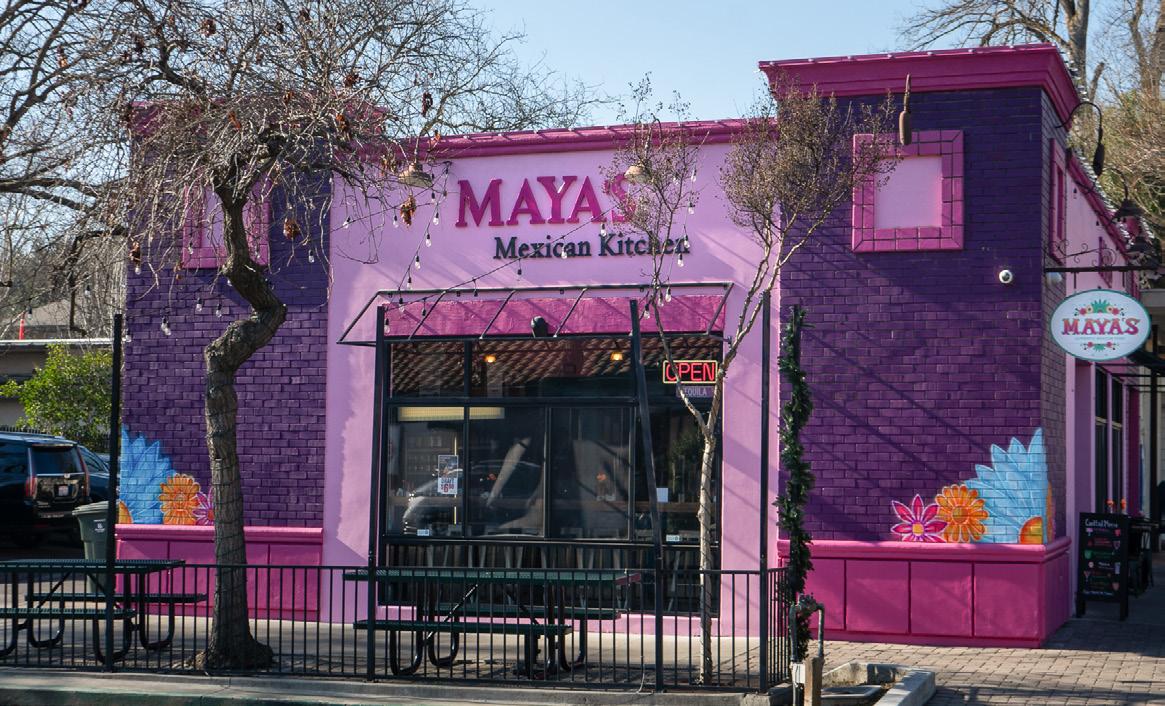
Artist Bussie Parker Kehoe returns to Pence Gallery with new solo exhibition: ‘A Curious Garden’
Almost a year after her stairway display, an Emerging Artist Award winner creates a new world with her unique recycled paint method
BY SAVANNAH ANNO
arts@theaggie.org
On March 1, 2024, San Franciscobased artist Bussie Parker Kehoe displayed her work in Davis for the frst time. Her small but captivating stairway exhibit at the Pence Gallery, “Lucky Seven,” won her the gallery’s annual Emerging Artist Award, which serves to support Californian creatives with limited solo exhibit history in furthering their work.
In just under a year, Kehoe has been upgraded from the stairway of the Pence to the frst foor, flling a large gallery space with over 10 diferent pieces all ranging in size and color. Open from Jan. 10 to Feb. 28, “A Curious Garden” is just as it sounds: a bright mixture of colors and artistic experimentation resulting
It may be
from Kehoe’s unique artistic method. A mixed-media artist, noted by the Pence to “walk the line between painting and sculpture,” Kehoe dries and layers discarded house paint to then cut and mold the material into various organic shapes. Glued onto
wooden panels, some are covered in geometric stacks and cubes of color while others are arranged in circular shapes to resemble fowing waves or fsh scales.
BUSSIEPARKER2 on 11
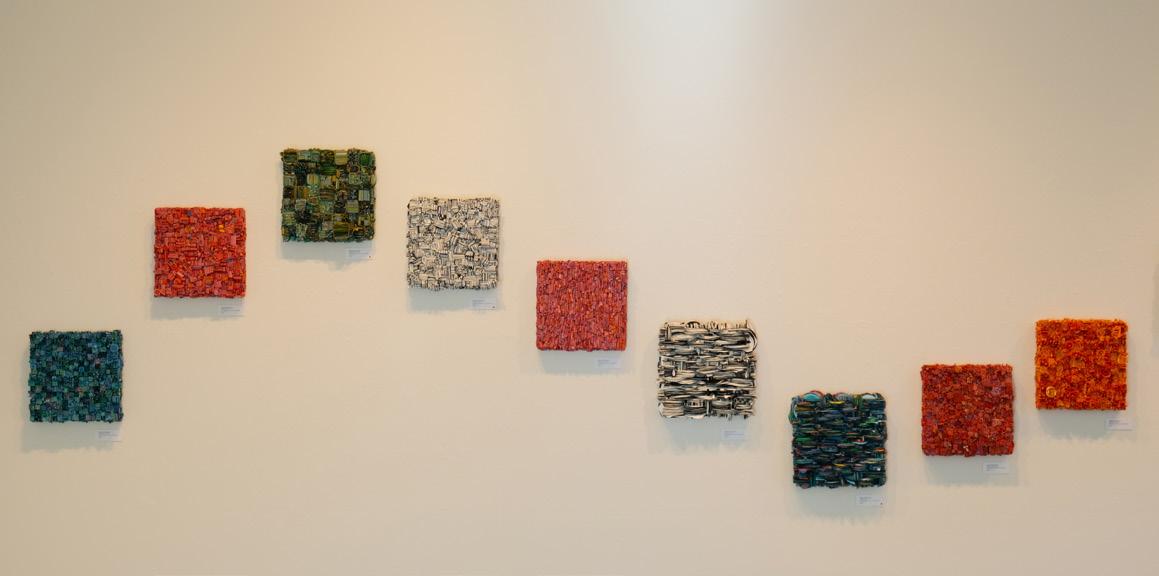
Bussie Parker Kehoe’s work on display at the Pence Gallery. (Christian Cendejas / Aggie)
Reevaluate how much you spend on streaming services and the rewarding aspect of tangible media
BY AALIYAH ESPAÑOL-RIVAS arts@theaggie.org
Streaming services have revolutionized the way humans consume media. “Streaming” is the ability to access media content on the internet without having to download the fle. Te concept was popularized by Netflix in 2007, following the company’s shift from Digital Versatile Discs (DVD) rentals to on-demand video streaming. Since its introduction, Netfix has not only grown as the largest streaming platform, with 296.6 million subscribers across the globe, but has made streaming the societal norm for consuming media. While streaming platforms continue to multiply in number and size, each platform’s catalog of content becomes increasingly important. Te uniqueness of each platform’s catalog is what can increase or decrease subscribers, making the acquisition of popular and new content a priority. Prior to 2022, the hit television show, “Te Ofce,” could be streamed on Netfix, as NBC and Netfix had a licensing deal. But, with the launch of NBC’s streaming service, Peacock, NBC ended their deal with Netfix and now is the sole distributor of the show. As the “streaming wars” between platforms continue through the acquisition of content, media is now diverged across platforms. As a result, consumers are not only paying more through increasing
subscription prices as platforms attempt to make up for lost revenue, but they are also paying for additional platforms for their favorite shows and movies. However, as consumers give more money to streaming services, it gives platforms even more power. Tis power has led to the concept of “rotating” content, allowing companies to diversify their catalog on a month-to-month basis through the removal and addition of new content. But this concept can contradict a user’s interest in subscribing, giving companies the power to remove content to their own discretion, regardless of user consumption.
On Oct. 3, 2024, HBO’s streaming service, MAX, removed numerous popular animated shows created by Cartoon Network. Tese shows included Te Powerpuf Girls,” “We Bare Bears” and “Regular Show.” MAX, owned by the Warner Brothers, advertised their catalog of animated shows by Cartoon Network in their initial launch yet has removed numerous titles without reason or notice to subscribers. Additionally, in 2023, Disney+ and Hulu removed dozens of original content from their platforms due to underperformance. While not every show or movie is guaranteed to be a hit, the creators and crew lose the beneft of fnancial compensation when their creations are removed from streaming services.
Subscribers pay high prices for these platforms, with Netfix’s cheapest adfree subscription plan being $15.49 a month. Yet, the media paid for through subscriptions doesn’t guarantee its
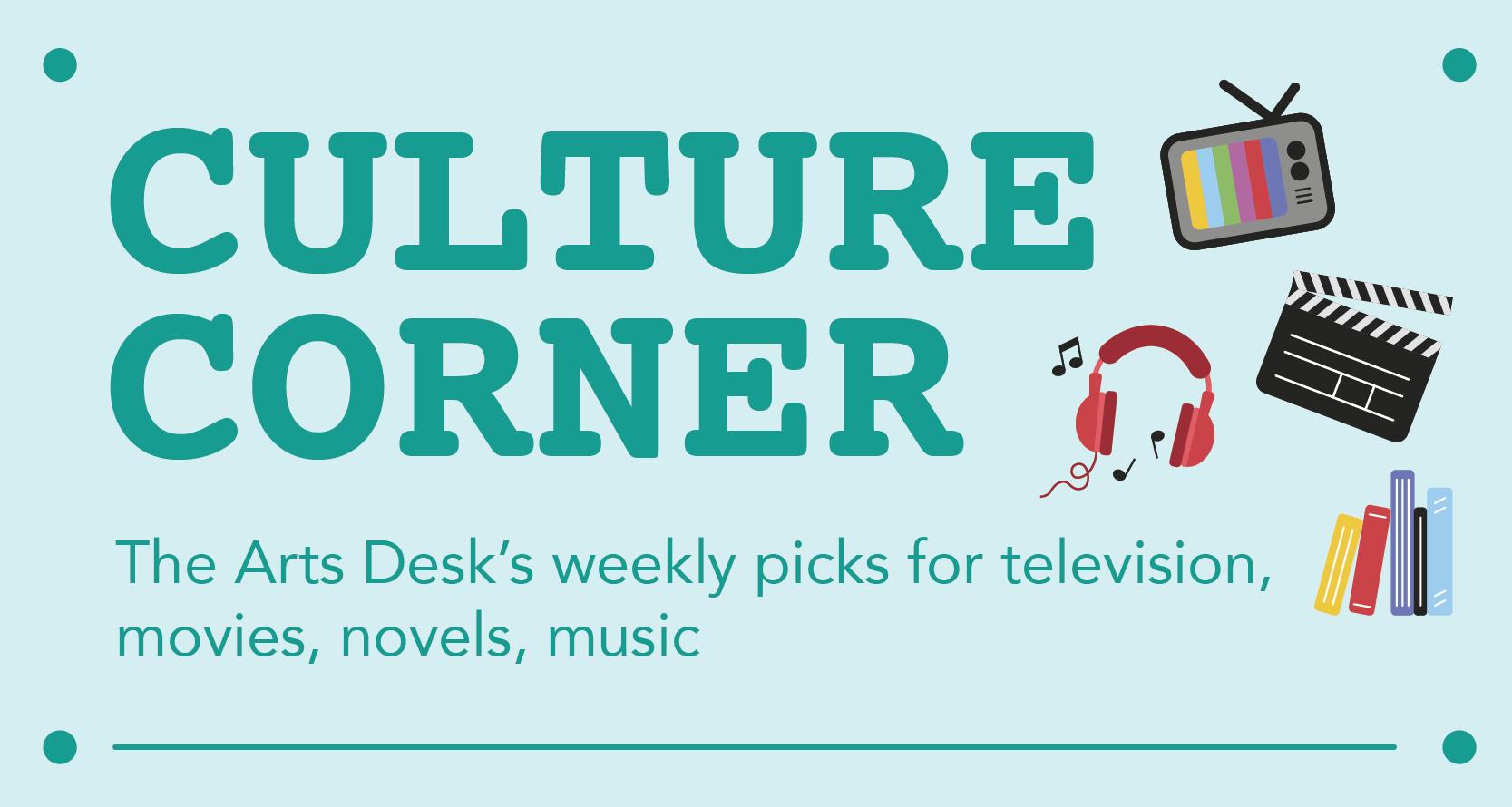
BY SAVANNAH ANNO and ALYSSA CREVOISERAT arts@theaggie.org
Album: “First Two Pages of Frankenstein” by Te National (2023)

Alyssa: Te National’s ninth studio album “First Two Pages of Frankenstein” is an introspective 11-track run that tackles themes of performance, depression and loneliness. With tracks like “Your Mind Is Not Your Friend,” the band’s lead singer, Matt Berninger, discusses the concept of generational mental health struggles and depression’s repetitive and inescapable hold. A gentle piano backing, soothing vocals and soft guitar make up the ballads of the album and are a constant accompaniment on my Spotify playlists. Notably, and my personal favorite, “Tropic Morning News” details the difculties of selfexpression and the anxiety of communication — “Got up to seize the day / With my head in my hands feeling strange / When all my thinking got mangled / And I caught myself talking myself of the ceiling.” Sonically diferent from the album’s ballads, the track features drums and bass but maintains Berninger’s deep, raspy vocal style for an overall captivating and self-refective song. In the same vein, “Alien” and “Once Upon a Poolside” are equally introspective and will leave you staring at the ceiling for hours. For lovers of lyrically captivating music and fans of Phoebe Bridgers, Taylor Swift and Sufan Stevens, look no further than Te National’s picture-perfect look into a sufering mind.
Savannah: I listened to “Te Alcott” so much when it was released that now it gives me immediate fashbacks to last winter quarter. Scary times.
TV Show: “Derry Girls” by Lisa McGee (2018-2022)
Alyssa: As an avid sitcom enjoyer — my senior year superlative was, unfortunately, Most Dedicated Binge Watcher — I am constantly searching for the next TV show to take over my life. Having watched my fair share of sitcoms, “Derry Girls” still has to be one of the most entertaining series I’ve ever had the pleasure of watching. With character decisions that make me audibly and visibly cringe, witty dialogue and, most importantly, funny Irish accents, this show’s runtime is three seasons of sitcom perfection.

“Derry Girls” follows the lives of fve teenagers — four girls and one English boy — growing up in Londonderry, Ireland in the 1990s, a period of political confict known as the Troubles that left Northern Ireland in a military stalemate and tense dynamic between catholics and protestants. Troughout the series, viewers are able to see loveable characters grow into young adults amidst the confict in a coming-ofage, episodic format where every 20-minute episode is a new adventure. With performances by Nicola Coughlan (Clare Devlin) from Netfix’s “Bridgerton” and Saoirse-Monica Jackson (Erin Quinn), to name a few, this show is sure to scratch the sitcom itch and provide a funny, heartwarming and inspiring tale — I promise, you will be genuinely begging for a reboot at the end of the show and typing something new into your search bar: “How to channel your inner ‘Derry Girl.’”
Song: “Orlando in Love” by Japanese Breakfast (2025)

accessibility and permanence. After all, everyone has experienced their favorite movie being removed from a streaming service, moved to another platform or, even worse — becoming completely inaccessible.
While it may be impossible to unsubscribe from every streaming platform, consumers have other options, like physical media. Specifically, purchasing and renting DVDs. DVDs became popular in the early 2000s following the decline in Video Home System (VHS) tapes. Originally costing anywhere from $20 to $25, DVDs can now be found on websites such as Amazon and eBay for less than $10. In Davis, there are two DVD stores: Armadillo Music, located on F Street, has an upstairs floor with a DVD section, with prices ranging from $3 to $5 per DVD; Bizarro World, located on E Street, has “Four Star Movie Rental,” Davis’ only video rental service. Patrons can rent DVDs for $2.50 for three days. Te store carries over 10,000 titles, including new releases and sets of entire TV series. Instead of jumping from platform to platform, resubscribing and unsubscribing, consider owning your favorite movies and TV shows. By owning and selectively choosing the media you consume, power is placed in the hands of consumers instead of streaming services. Owning your media means it cannot be rotated out, kept in a vault or leave you with content you’re not interested in.
Savannah: Released just a few weeks ago on Jan. 7, Japanese Breakfast makes a triumphant return with “Orlando in Love,” along with the announcement of their upcoming album, “For Melancholy Brunettes (& sad women).” While front-woman Michelle Zauner’s voice remains as bright and addictive as ever, the band’s new track hints at a slower, more delicate sound for the new record — a direct contrast to their last hit album, “Jubilee,” full of upbeat synth and punchy instrumentals. “Orlando in Love,” is short but sweet, with soft strings that refect the lyrics’ tale: a lonely traveler at sea falling into the dreamy trap of a siren’s call. While the song lacks a true chorus, the third verse has been continuously stuck in my head since its release, with Zauner’s voice peaking as the strings pick up right along with her. Paired with a beautifully detailed music video, Japanese Breakfast has set the perfect stage for their newest era which, as a fairly melancholy brunette myself, I will happily embrace.
Alyssa: I am also a sad brunette.
Book: “Te Will of the Many” by James Islington (2023)
Savannah: What I feel is a gift to the now-adult kids who were obsessed with Greek and Roman mythology in middle school, “Te Will of the Many” is the frst installment of James Islington’s newest series, “Te Hierarchy.” Set in the Republic of Caten — a fctional society with cultural parallels to the Roman Empire — the fantasy book follows Vis, a young orphan hiding a real name that could lead to his immediate demise. As with any great fantasy work, Islington sets up a magic system all his own, one where an individual’s power and class level is determined by how much “will” they receive from the people positioned below them, collected by an ancient technology and special stone devices called “sappers.”

Beginning the novel as a prison guard, Vis’ world changes when he encounters one of the Republic’s most powerful senators, who proposes to adopt Vis and mold him into a perfect student for Caten’s most elite academy. Tasked with an impossible mission to uncover the secrets of the school and surrounding island, Vis risks everything for a chance at permanent freedom. Considering I caught a girl on the J-line engrossed in the exact same book, it wasn’t just me who enjoyed Islington’s level of detail and jaw-dropping twists and turns in this new dissection of colonial empires.
Alyssa: Am I ofended that I’m not the one with the fantasy recommendation? Yes.
Accompanied by a surprise speaker, both authors bring the rom-com spirit to Davis
BY IQRA AHMAD arts@theaggie.org
Attention all rom-com afcionados!
Grab your popcorn and front-row seats, because a queen of romance literature has graced our humble college town with her presence. Sarah Adams, the New York Times bestselling author with a knack for writing swoon-worthy moments, joined USA Today bestseller Julie Soto for a night in Downtown Davis.
Te Avid Reader rolled out the literary and metaphoric red carpet at the Veterans Memorial Teater to host Adams and Soto as they charmed the audience to discuss Adams’ latest release in her four-part “When in Rome” series: “Beg, Borrow, or Steal.” (Spoiler Alert: it debuted at #4 on the New York Times Best Sellers list of Paper Trade Fiction in just eight days.) Guests were greeted with a signed copy of Adams’ new book. Attendees, true to the spirit of book lovers anywhere, lined up immediately to buy more books because, honestly, you can never have too many. Inside the theater, the ambiance was
set. Songs from Taylor Swift, Gracie Abrams and Sabrina Carpenter created a cozy and lighthearted atmosphere that felt like the absolute perfect soundtrack to a rom-com. Adams later shared that this newest release is best read listening to “Imgonnagetyouback” from Taylor Swift’s “Te Tortured Poets Department.”
Attendees mixed, mingled and buzzed with excitement as they snapped selfes with one another to capture the magic. Te hall was nearly sold out, with just a few empty seats left, and let’s face it, those seats were probably saved for latecomers stuck in trafc. Te crowd was packed and ready, anticipation bubbling as they waited for Adams and Soto to step onstage. When the duo fnally appeared, they kicked of things with jokes and playful banter. Adams entertained the crowd with a fun tidbit: Each of her books is loosely inspired by an Audrey Hepburn flm — cue the collective oohs and aahs from the audience. Adams also shared that some scenes and interactions between her characters are a nod to the little moments between her and her husband.
As Adams shared her journey into
writing, she described how it all started during her kids’ nap times when she wanted to rekindle the joy of falling in love with literature.
“Every woman has a closet of romance books,” Adams said.
Te event continued to unfold with a lively Q&A, where eager attendees lined up to ask Adams about everything from her writing process to overcoming challenges. With refreshing honesty, Adams admitted that she takes feedback personally: “Don’t we all?”
Adams and Soto, proving they are as kind as they are talented, stayed late to meet their fans. Tey signed and personalized up to three books per attendee (a true test of wrist stamina), chatted with readers and posed for photos. Te line to meet them snaked through the hall, but no one seemed to mind — for fans, this is the rom-com equivalent of meeting royalty.
If this sounds like the kind of event you don’t want to miss, be sure to check out Te Avid Reader for future author meet-ups. Who knows? Your next favorite writer might be just a bookstore visit away!
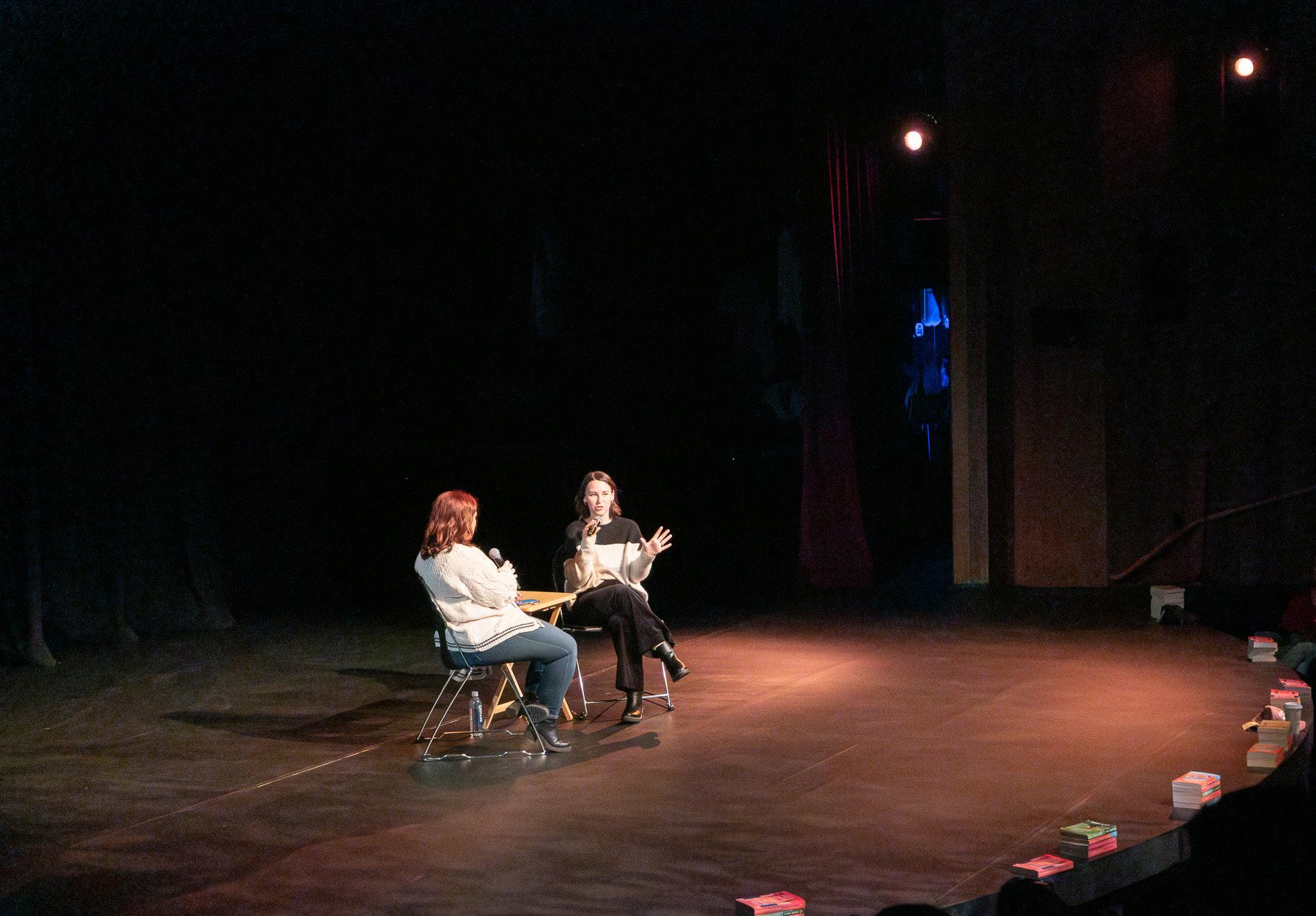
The installation captures her meteoric rise and the golden era of supermodeling
BY BETH MUNRO-MORRIS arts@theaggie.org
A museum renowned for its emphasis on art and culture, London’s Victoria and Albert Museum is celebrating supermodel Naomi Campbell with a groundbreaking honorary exhibition. Running from June 22 to April 6, ‘NAOMI- In Fashion’ is an interactive experience that takes visitors on a journey through Campbell’s lifelong career, delving into the story behind her meteoric rise while showcasing some of her most iconic looks.
Gracing the pages of Elle and the front covers of Vogue was never part of Naomi’s plan. Growing up, she dreamed of performing on stage rather than on a catwalk. Although she performed in music videos for artists including Bob Marley and Culture Club, she quickly transitioned into a global fashion icon after a model agent scouted her in London’s Covent Garden at the age of 15. She, and the rest of the world, would come to realize that this
move shaped both her career and the industry as a whole. Foundational to Naomi’s success was her background in dance, which photographers drew upon to direct poses that we see in her catwalk strut. While many models specialized in either print or runway, Campbell excelled in both, appearing in editorials, advertisements, clothing catalogs and, of course, on some of the world’s most prestigious catwalks.
Landing her frst cover on Vogue at the age of 17, Naomi Campbell immediately captured the attention of distinguished fashion houses including Versace, Vivienne Westwood, and Yves Saint Laurent — proving to be among their most lucrative endorsements.
Catapulted into the spotlight, she jetted between London, Paris, New York and Milan, quickly gaining international acclaim. Having conquered fashion’s “Big Four,” Campbell solidifed her place in the pantheon of iconic ‘90s supermodels, alongside the likes of Cindy Crawford, Tatjana Patitz and Linda Evangelista. Campbell is the face of one of

The novel finds and examines the virtue in giving up on making sense of things
BY JULIE HUANG arts@theaggie.org
Sally Rooney’s latest novel, “Intermezzo,” is, in the broadest sense, about the futility of humanity’s enduring attempts to make sense out of an ultimately senseless world, with the possibility of abandoning the eternal quest for meaning altogether. Rooney’s novel delivers its existential take through the vessel of a more downto-earth, familiar narrative: the story of a disjointed family, with two brothers who have grown apart as they grow older.
Peter Koubek, a lawyer in his 30s, and Ivan Koubek, a 22-year-old competitive chess player, have both chosen to dismiss their deteriorated brotherly relationship at the cost of increasingly negative mental and external consequences for both. Tat is, until the grief of their father’s death, which has been looming over the course of the novel, fnally forces them to address their issues with each other.
The two male protagonists are introduced to the reader and then continually developed through their participation in socially unconventional and perhaps questionable relationships with the women in their lives. Peter is romantically juggling a situation with his complicated long-term best friend and college ex-girlfriend Sylvia, as well as a passionate stint with college student Naomi. Meanwhile, Ivan’s frst appearance in the novel details his meeting Margaret, an older woman recently separated from her husband, who is also serving as the event coordinator for the chess match Ivan’s currently participating in. Of course, Ivan is immediately attracted to Margaret and they begin a scandalous age-gap relationship, which bothers Ivan less than it does Margaret.
The majority of the novel’s characterization occurs within the framework of this emotionally complicated and socially unacceptable romance between these men and women, which can raise an uncomfortable and perhaps frustrating feeling that the
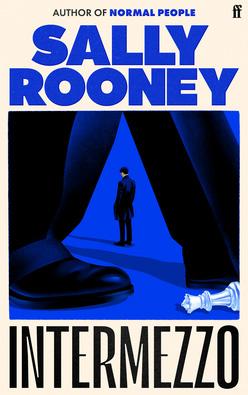
novel’s female characters exist solely to illustrate the depth of Peter and Ivan’s emotional basins.
In a sense, they do. Opposites in personality, presentation and proclaimed inner values, the brothers are strikingly alike in how they perceive their female counterparts in the narrative. At times, Peter and Ivan perceive Sylvia, Naomi and Margaret as people with merits and faws, but the brothers love these women best and most consistently because they are emotionally useful. Tey have the amazing capacity of acting as magic mirrors through which the emotionally inept brothers can perceive the fow of their own lives more clearly and fnally make sense of turbulent emotions that have been magnifed through the intensity of their romantic and sexual passions for the women in their lives.
The novel’s pages contain no judgment or explicit condemnation of its characters for their selfshness, only a gentle curiosity for the way the male characters’ emotional arcs refect the real phenomenon of how men look to women to grant their lives meaning.
fashion’s most unforgettable moments — a theatrical fall during the 1993 Vivienne Westwood show. As she navigated the Paris runway in 12-inch heels, Naomi tumbled to the foor. It was her poised recovery that captured the public’s attention; With a laugh, she rose to her feet and continued walking as though nothing had happened.
Another memorable moment for Campbell came at the Azzedine Alaïa Spring 1998 show, where she spontaneously broke into an unchoreographed, tap-inspired dance routine mid-catwalk. Naomi’s ability to infuse the runway with her playful personality helped defne the 1990s supermodel era — fashion shows were not just about clothes but also the aura that models brought to the stage.
Campbell’s resilient reputation became a part of her larger legacy as a trailblazer for Black models in the fashion industry. Although successful in challenging Eurocentric ideals of beauty within the modeling industry, Naomi’s infuence extended far beyond the fashion world. She became a global advocate for social justice, using her fame to challenge inequalities and empower marginalized communities.
In the late 1990s, Naomi earned the title of “honorary granddaughter” from Nelson Mandela, joining him in his eforts to improve the lives of South Africa’s youth. Raising substantial funds for the Nelson Mandela Children’s Fund, she participated in various charity galas, fundraising events and public initiatives related to education, healthcare and the fght against child poverty.
In addition to her philanthropic work, Campbell also leveraged her fame into entrepreneurship, launching her own perfume line. Her appearance in Michael Jackson’s “In the Closet” music video marked a full-circle moment as she reconnected with her roots in the entertainment world.
Under Naomi Campbell’s infuence, fashion evolved into mass entertainment and supermodeling became a globally recognized industry. Despite decades of success, her reign is far from over. Naomi continues to model for top designers, showing that her influence on the fashion industry, now more enduring than ever, remains unparalleled.
Who doesn’t love seeing their neighbor dress up as their favorite celebrity?

BY DEVANSHI AGNIHOTRI arts@theaggie.org
Imagine going on your daily walk with your dog through Washington Square Park, yet on this day in particular, you see Willy Wonka — accompanied by several other people who look just like him. Tey all share the same dark curly hair and strikingly similar facial features. Suddenly, you fnd yourself stuck in a swarm of people who look like Timotheé Chalamet, the most-recent portrayer of the character. So, what is responsible for this phenomenon? Te answer: lookalike contests.
Dressing up as your favorite characters and celebrities has been a common activity — it’s a way to show appreciation or just have fun. But recently, lookalike contests have risen in popularity. On Oct. 27 at 1 p.m., YouTuber Anthony Po posted a fyer advertising a Timotheé Chalamet lookalike competition at the Washington Square Park Arch in New York City. Miles Mitchell won the contest while dressed up as Wonka. He earned a trophy and $50 prize while also meeting Chalamet, who took surprise photos with contestants. After Chalamet showed up to his own contest, excitement sparked around these lookalike competitions. Despite the $500 fne issued by the New York Police Department for hosting a public event without a permit, many contests have since been hosted for various celebrities.
Tese contests have been occurring all over the country. For example, the Dev Patel lookalike contest was held in San Francisco and the Glen Powell lookalike contest occurred in Powell’s hometown in Texas. Te number of contestants has been huge, with people entering themselves, friends and even siblings into the competition. Te contests started as a way to have some fun, but they have now launched into something even greater by getting the actual celebrities involved. During the Powell lookalike contest, the actor sent in a video explaining that the winner’s family member would earn a cameo in his next movie. Powell was also able to meet his lookalike at the 2025 Golden Globe Awards when Maxwell Braunstein, Powell’s lookalike, and Mitchell, Chalamet’s lookalike, were both invited to the award show. Te two lookalikes even took an iconic photo when they held up a sign that reads: “I won a lookalike contest and now I’m at the Golden Globes.” Tis moment helped bring the internet’s excitement full circle. Aside from meeting the celebrities, people have been using lookalike contests to engage with their local communities, meet new people and fnd out which community members look the most like their favorite celebrities. So, look in the mirror, fgure out your celebrity twin and book the quickest fight to the next contest with the hopes of winning a trophy, some money or even meeting some of your own lookalikes.

BY LAILA AZHAR features@theaggie.org
As of December 2024, ChatGPT
— a generative Artifcial Intelligence (AI) chatbot developed by OpenAI — is the ninth most-visited website in the world. It is largely credited with sparking an “A.I. arms race,” as companies such as Google and Meta began creating competing chatbots.
Tis rise in popularity of generative AI chatbots has raised both excitement about technological innovation and concerns about misinformation and the potential for human intelligence
to be rendered obsolete. On college campuses, much of the conversation surrounding AI has to do with the potential for plagiarism. Te website can generate essays, discussion posts or answers to math or coding problems with nothing more than the press of a button. Other criticisms of ChatGPT include its environmental impact, as generating even short texts through the software requires mass amounts of water to cool down the equipment. In order to account for academic concerns, professors have been adopting AI policies into their course descriptions. While many
outright prohibit the use of any AI in the classroom, certain classrooms provide unique ways for students to think about the potential uses of this technology.
For example, certain language courses, including French, at UC Davis have begun implementing AI logs; Trough these logs, students are permitted to utilize resources like ChatGPT in their learning, so long as they track when and how it was used and what they learned from it. Strategies like this may play a role in destigmatizing the technology, ofering students ways to utilize AI as an educational tool instead of as an
outlet for academic dishonesty.
UC Davis Department of Political Science professor Mark Verbitsky, for example, came up with his AI course policy through discussions with his class. After reading the AI summaries of Supreme Court cases, Verbitsky asked students to identify what someone would miss if they had only read the summary and not the entire case. It was through these discussions that his course policy, which prioritizes transparency, was put together.
Verbitsky said that certain uses of AI take away from students’ full understanding of course content.
“If I want to teach students how to read a Supreme Court case, and they’re tempted to just say, ‘Give me a summary,’ they’re going to lose those core abilities,” Verbitsky said.
On the other hand, Verbitsky chose to take a diferent approach than simply prohibiting its use entirely.
“If we just outright forbid it, then it’s sort of like this black magic,” Verbitsky said. “If we say, ‘Don’t use this thing that will give you all the answers,’ students will be much more curious about it.”
Instead, he aims to foster critical thinking about the limitations of AI. In fall quarter, his students wrote analyses of ChatGPT’s responses to prompts about the course content, noting its simplicity and generalizations. Rather than simply setting the parameters for AI usage, he encourages students to think through how they utilize it.
Verbitsky’s syllabus notes that AI outputs may be refective of biases.
Te answers may also refect bias present in the underlying sources (e.g. what is the most common thing said on a given topic and are there biases in common responses?) or in algorithms built by tech engineers (e.g. Silicon Valley tech workers may not be representative of broader society),” the syllabus reads.
Verbitsky also encouraged educators to write questions that are
interesting — interesting enough for students to want to answer them themselves and interesting enough that an AI chatbot can’t give an answer with enough complexity.
“To the extent that AI can give a really, really good answer to your assessments, you could ask, is this a good assessment of student learning?” Verbitsky said. “If a mindless predictive text thing can respond to this, what can you do to make it a more interesting question?”
Tese nuanced AI policies are generally perceived as being more efective, according to UC Davis students.
“I feel like in classes where a professor bans ChatGPT or AI, I wonder more about whether or not people are actually using it,” Melody He, a fourth-year international relations major, said. “If a professor has a more detailed guideline for how exactly they want us to use it, it feels more like everyone’s on the same page.”
Students also note the atmosphere of anxiety surrounding AI.
Tings like GPT are so new, everyone is still freaking out about their potential,” Jason Huynh, a second-year managerial economics major, said. “On one hand, I understand people just wanting to say, ‘Don’t use it at all,’ but on the other, there are ways for it to be used as a tool without plagiarizing. At the end of the day, the people who use it to plagiarize are hurting themselves and their learning.”
As AI continues to evolve, both students and educators will be required to think through the best ways to use it. Toughtful policies which balance transparency, honesty and critical thinking have the capability of maintaining both the potential capabilities of AI and the integrity of students’ learning experience.
The history of hot chocolate, how students drink it and recommendations on consuming the beloved beverage more ethically
BY AMBER WARNKE features@theaggie.org
Hot chocolate has long comforted humankind, originating as far back as the ancient Olmec, Mayan and Aztec cultures of what is now Mexico and Central America. Tis early predecessor to hot chocolate, however, was vastly diferent from what we know and love today, with these cultures drinking their chocolate in an unsweetened and unheated form. It was consumed as far back as 3,500 years ago and was considered a form of medicine, as well as often being drunk during special occasions.
In the 1500s, the drink was introduced to Spain during Spanish colonization. Tere, sugar and cinnamon were added to the drink, but it did not become widespread for over a hundred years due to the drink being restricted to the nobility. In 1828, Dutch scientist Coenraad Van Houten revolutionized the process of creating hot chocolate with the invention of the cocoa press. Tis removed most of the cocoa butter from the processed cacao, refning the drink and led to the modern form of hot chocolate we drink today.
People all around the world love hot chocolate and fnd solace in the drink’s sweet and cozy taste. Hot chocolate is loved throughout Davis, both on and of the UC Davis campus.
Grace Kasabula, a second-year plant sciences major, shared her love for hot chocolate, as well as her preferred method of consuming it.
“It makes me feel warm and happy
inside,” Kasabula said. “I like to make it with the dark Swiss Miss packets [...] I make it with milk, not water. If you’re having hot chocolate, it better be with milk. I [also] like to spike hot chocolate [with] adult beverages.”
Kasabula especially benefted from hot chocolate when she worked as a ski coach at Ski Bradford in Haverhill, Massachusetts.
“I would come home from work all day in the snow, and I would just have some hot chocolate by the fre,” Kasabula said. “It was just a nice way to end my day.”
Kasabula believes that chocolate is one of the best ways to deal with a difcult day, and recommends UC Davis students to drink hot chocolate when dealing with academic stress.
“Froth that up [and] call it a night,” Kasabula said.
Kaitlyn Deem, a fourth-year cognitive science major, also said drinking hot chocolate is a way to manage college stress. She said that fnding out what concentration of chocolate she likes best in the drink led her to realize that the beverage can be enjoyed in many forms.
“It’s way more customizable than I thought,” Deem said.
Salina Kamburova, a fourth-year managerial economics major who works at a cofee shop, Pachamama, in Downtown Davis, is skilled at customizing hot chocolate. Tere, Kamburova serves a variety of drinks, including cofee, matcha, teas and hot chocolate. She enjoys making artistic drawings on top of the hot chocolate with milk foam in the shape of fowers, bears, hearts and snails. Being a professional hot chocolate
Peter and Ivan, too afraid, apathetic or self-loathing to face each other or their deeply embedded neuroses, fnd through relationships with Sylvia, Naomi and Margaret a purpose. Tis purpose valorizes and transforms them from fallible men into lovers and protectors, a reason for living that validates their past unrelated failures and illusory sense of heading in the “right” direction. In other words, the female characters provide what the male characters cannot give themselves: the tantalizing idea that life is building up to an ultimate culmination of something.
Without commenting on the dubiousness of their choices to continue engaging in these relationships, “Intermezzo” presents this subtle explanation of why Peter and Ivan cling so vehemently onto their respective romances — because they perceive these women as possessing a unique attribute to bring them clarity and contentment, when really what they are feeling is the sense of self-harmony that they have lost over the years. To bring a new perspective to this idea of using others to create personal
meaning, Rooney intermittently provides the reader with Margaret’s narration on her questionable romance with younger Ivan, using Margaret’s conficted thoughts on her feelings for Ivan to refect how the male characters perceive the female characters. Like the brothers dealing with the loss of their father, Margaret has recently faced loss: she has separated from her alcoholic husband, and in losing her established family, she has lost her sense of identity, foating adrift until she meets Ivan. Although his adoring worship of her brings her some solace, it does not abate but rather brings a whole new slew of worries. Has she done something morally unsalvageable by entering a sexual relationship with a man so much younger than her? Is she past redemption?
Margaret begins the novel as a woman who has lost her marriage and thus doubts the entirety of her previous identity, fearing that if she made such a mistake as marrying the wrong man, she may have lived the whole of her life entirely wrong. Her spontaneous decision to be intimate with Ivan then seals the sense of loss of identity completely — by doing something completely unexpected, she has made a choice she did not know she ever would make and fnds herself no longer
maker, Kamburova ofered specifc recommendations to students hoping to make high-quality hot chocolate at home.
“Make sure whatever chocolate base you’re using is really well mixed before you add the milk,” Kamburova said. “I [also] like adding lavender simple syrup and peppermint.”
However, her greatest joy in serving hot chocolate is how it enables her to connect with children who come into her work because they order hot chocolate frequently.
“It’s fun to make the little bears on
[the hot chocolate] for them and see their reaction,” Kamburova said. While the drink has positive connotations with its drinkers, the ethics of the chocolate industry are another aspect to consider when buying cocoa products. Child and slave labor are major issues on cocoa plantations, according to the Food Empowerment Project. Most cocoa farmers earn less than one dollar a day, and about 2.1 million children in the Ivory Coast and Ghana are used for child labor on cocoa farms. Experts in these issues recommend
not purchasing hot chocolate or other goods from companies including Nestlé, Cadbury, Lindt, Ghirardelli, See’s Candies or Hershey’s. Instead, they recommend shopping from more ethical brands like Tony’s Chocolonely, Divine and Vego.
So, top of your hot chocolate with whipped cream — or, as some students recommend, some lavender syrup — and have a cup of cheer. Regardless of your hot cocoa-based preferences, looking into where hot cocoa is sourced can assist those interested in buying both ethically and responsibly.
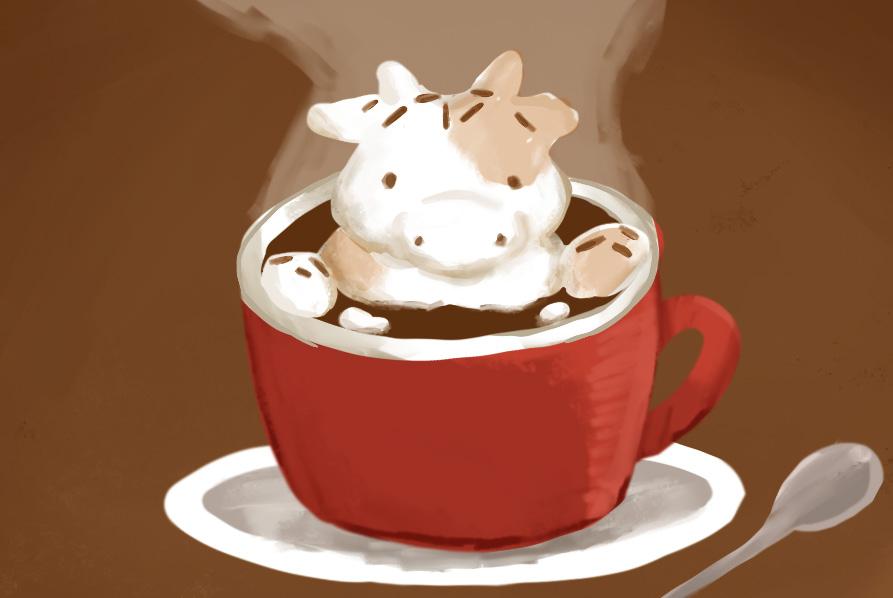
recognizable. Driven by the desperation of wanting to identify with something but fnding all the old haunts irrevocably changed, Margaret turns to Ivan for a sense of personhood. If before she was defned by her husband, then now she is defned by her relationship with Ivan, even if that makes her a “cougar” or some sort of seductress, instead of the dutiful long-sufering wife that she formerly was with her alcoholic husband. Thus, the most compelling argument that “Intermezzo” could make for the rejection of the endless search for meaning and the falseness of organizing one’s life around some pre-existing expectation, lies in the unsavory results of its characters’ own subscription to these rejected beliefs. Without explicitly judging or condemning its characters for their modes of extravagant selfdestruction, “Intermezzo” nonetheless showcases the pain and heartache that its characters feel and then bring to each other. Tis is an illustration of how hurtful and dangerous it can be to fool oneself into believing that everything in life, including oneself, can be easily reduced into artifcial roles and frameworks. Not content to end on this moral note, “Intermezzo” goes further to
suggest that, no matter the previous energy or belief that one has devoted to making life make sense, no one is ever completely trapped by the choices of their past. Tis attitude of acceptance and fnding the strength to move on is shown most clearly in Margaret’s character arc, which ends in her refecting that Ivan is not an escape from the pain of her past entirely but rather simply a new experience, which cannot in itself guarantee what her future will become. Coming to the conclusion that their relationship is not all-defning then allows her to enjoy the positive experiences more openly, without the risk of losing her entire identity, because her identity no longer belongs to any specifc circumstance or choice. Tough possessing less emotional clarity and perhaps maturity, the brothers are allowed similar endings to their arcs. Peter muses on the “conceptual collapse of one thing into another, all things into one,” which is his own way of accepting that his own defnitions of himself, his brother, his job and his romantic relationships are ultimately enforced by no one but himself and can be abandoned if they start to hurt him or others. Ivan circles the idea when he points out the faw in using human creations like language to assign order to the inherently chaotic
arena of existence: “All words can give a false picture, and who’s to say what picture another person ends up with, even when the supposedly right words are used?”
Early on in “Intermezzo,” the novel itself boldly asks, “What if life is just a collection of essentially unrelated experiences? Why does one thing have to follow meaningfully from another?” We want things to make sense. We want there to be a formulaic system from which the answers can be retrieved, but there is no ideal system of signs and no infallible language to speak that will doubtlessly bring understanding. In “Intermezzo,” the characters’ desire to make sense of their lives and of each other casts shadows of doubt upon their morality, but it is the deeper desire to know that they are still connected to the world and to each other that ultimately redeems them.
“Intermezzo” is concerned with separating the pursuit of happiness from the desire to be right. It tries to banish the notion that one can hold the right expectations and place the circumstances of life within the right framework. Te novel is about choices and how we defne ourselves by choices we have already made, which is why we are often surprised when we fnd that we still have a chance to choose again.
Enter digits from 1 to 9 into the blank spaces. Every row, column and 3x3 square must contain each digit. Each Sudoku has a unique solution that can be reached logically without guessing.

Student drives himself insane over Memorial Union pizza bagel
BY ALLISON KELEHER
adkeleher@ucdavis.edu
My poor friend, Dwayne, a geology major, took some muchneeded respite from instruction during the winter break — needed because he spent all of fall quarter obsessing over pizza bagels. Te sad thing is that he started the fall quarter as a transfer student, so he doesn’t know what “normal” is like here at UC Davis. He attempted to explain his dilemma to me countless times; However, I was never able to soothe his thoughts. It all began in September when he was a fresh and shiny incoming student. Te world was his oyster. He dreamt of researching rocks to his heart’s content. All was well for Dwayne in the beginning. His classes were interesting, and he was trying out diferent study spots around campus in his free time. Tat was, until he tried out the CoHo in the Memorial Union. Te CoHo overwhelmed Dwayne with all of the students, countless food options and excess of natural light. However, he powered through toward the bagels. Dwayne loves bagels. One year in high school, he ate bagels twice per day every day, and it sent him to the emergency room for severe
constipation. Now, he tries to restrain himself from his vice. Luckily, he hadn’t had a bagel in a week, so it was okay to indulge. Tis was when the pizza bagel caught his eye. Tis was a rare delicacy that Dwanye typically tried to avoid. In an impulsive moment, Dwayne ordered a pizza bagel. As the MU bagel artisan was preparing his pizza bagel, Dwayne bit his lip in anticipation because he knew that he just made a bad decision.
Once the pizza bagel was ready, the employee called out Dwayne’s name to reunite the bagel with its true home. Dwayne found a
luxurious booth in the CoHo and sat down to eat his pizza bagel. Napkin in one hand and his pizza bagel in the other, Dwayne took a large bite. Oh no.
Dwayne was flled with immense disappointment, because the bagel was a mushy mess. He took another bite and it only got worse. Dwayne frantically took bite after bite to mend the situation, however the bagel never improved.

He carried this disappointment with him throughout the week. He couldn’t sleep at night, focus in class or even maintain a meaningful conversation with his new friends.
After seven days of wallowing, Dwayne couldn’t take it anymore and stumbled into the CoHo in search of a replacement bagel.
“One pizza bagel please,” Dwayne ordered anxiously. It was torture to wait for his bagel to be ready. Once it was, Dwayne carried it carefully over to a table and set it down cautiously. One bite in, Dwayne felt fooded with disappointment once more.
Troughout the rest of fall quarter, Dwayne entered into an obsessive cycle of eating pizza bagels and then entering manic episodes of disappointment due to how terrible they tasted. His grades sufered and his
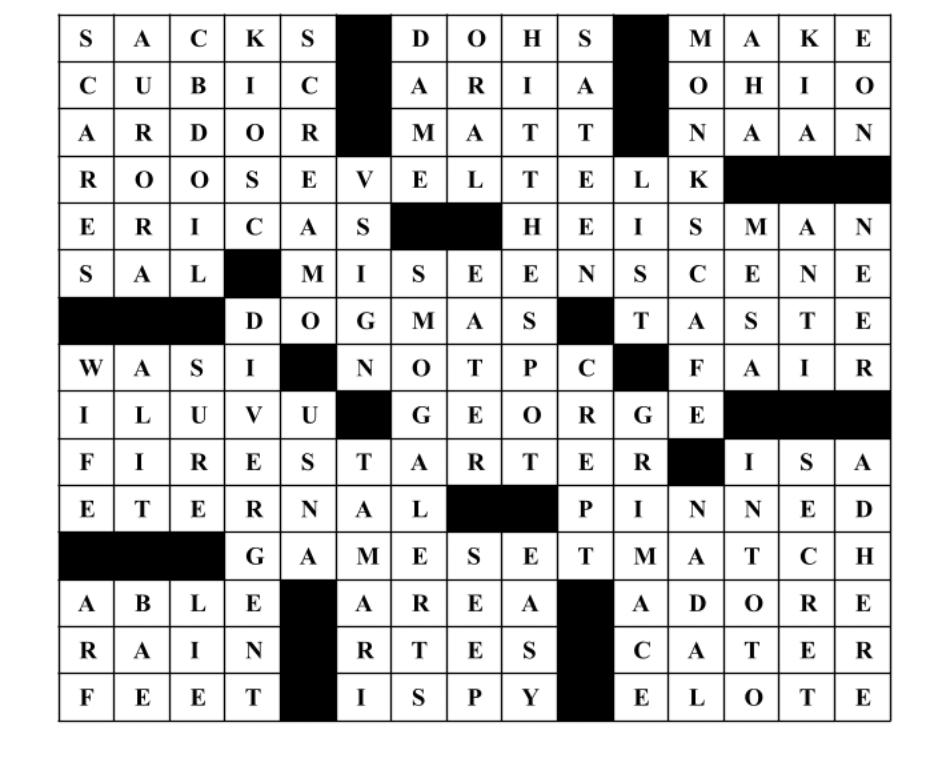
Especially during a time of a big political transfer of power, students at Davis and far beyond believe that staying informed and aware of one’s news consumption remains critically important.
“I am very grateful for the opportunity to learn from my peers, who have shared their unique perspectives and life experiences, broadening my understanding of the world.”
Te school’s location and role as a public university also make it a special place to discuss these types of events, according to Lee.
“By nature of it being a public university in California, one of the largest and most diverse states in the country, UC Davis has a student body consisting of people from many diferent backgrounds,” Lee said. “Tese backgrounds and perspectives shape people’s opinions about what makes policy ‘good’ and politics as a whole. An institution of higher education certainly serves as an adequate environment to discuss and study a presidential inauguration, which is a rare enough event such that the average student probably has the chance to observe only one during their entire undergraduate career.”
Students have also discussed that covering major political events like the inauguration in history or politicscentered courses can be particularly helpful to further understand certain concepts.
“I found that POL 002 [Introduction to Comparative Politics] and POL 142C [Democracy & Democratization] both covered measures of democracy during political transitions, as well as polarization and instances of democratic backsliding in the United States,” Lee said.
Outside of the classroom, many students have found space to discuss their political perspectives online.
“I’ve noticed people sharing their political views on social media, particularly this week and in the last couple of months,” Pimenta said. “I think many people feel especially safe sharing their perspectives with friends on diferent social platforms.”
friends felt sorry for him. Near the end of the quarter, one of his friends (what a saint) decided to help him through this rough patch so that he could lock in for fnals week. His friend, Hayley, held his hand and guided him back to the CoHo. Tis time, she hoped to persuade him to eat a diferent bagel so he could move forward from his toxic relationship with the pizza bagel.
“Why don’t you try a toasted plain bagel, that wouldn’t be too bad?” Hayley soothed Dwayne. He was apprehensive, but went along with her plan because it couldn’t possibly be worse than the pizza bagel. Toasted bagel in hand, Hayley helped him fnd a place to sit and test out this new bagel. Dwayne took a small bite and was flled with relief. Tis bagel actually wasn’t too bad. He frantically took more bites to verify that this was true. Te bagel tasted amazing. It was perfectly toasted and
“I make it a point to read and watch the news, as I believe it’s essential to get information from as many sources as possible, even if I don’t always agree with them,” Cohen said. “Doing so helps me understand how other people think and why they might hold certain views. It can also challenge my own beliefs and prove when I’m wrong, which is an important part of personal growth. I think political beliefs should be nuanced, as there are often multiple layers of reasoning behind diferent perspectives.”
Reading the news and seeing diferent moments from Inauguration Day also meant seeing a variety of memes and jokes about certain political fgures or celebrities.
“I saw a lot of funny moments online, whether it was about Melania Trump’s hat or Hilary Clinton’s reaction to Trump — but they somehow felt overshadowed by the seriousness of his executive actions,” Pimenta said.
Although this Inauguration Day brought about highly polarized opinions and reactions, both within and outside of the UC Davis community, some students remember the importance of striving for unity.
“By having open, respectful conversations, we can grow and foster a more understanding and less divided campus community,” Cohen said. “While it’s important to understand and celebrate what makes us unique, it’s equally important to focus on what unites us.”
Tis past Monday brought about many changes for the country, and there will undoubtedly be more to come as a new administration’s four-year term continues. Troughout this political transition, students at UC Davis are looking for ways to connect with the community, stay informed and remain actively engaged while maintaining mental well-being and balance.
crispy to Dwayne’s liking.
Tis was when Dwayne realized the reason why the pizza bagel was so terrible. It was toasted in the same manner as this plain bagel, which wasn’t enough for the hefty pizza bagel. Dwayne was cured from his obsession and turned to give Hayley a gigantic hug for her help.
One hour later, Dwayne was spotted at the library — locked in. He spent the rest of his time at UC Davis in the library to catch up on all the material that he missed during the pizza bagel mania. He was able to catch up, scoring high on all of his fnal exams.
Dwayne lived happily ever after without that cursed pizza bagel. Te End.
Disclaimer: (Tis article is humor and/or satire, and its content is purely fctional. Te story and the names of “sources” are fctionalized.)
Humanities departments struggle with digitized versions of texts as opposed to paper copies, which are not widely provided by the program

BY RACHEL GAUER features@theaggie.org
To many students, Equitable Access (EA) is the program that provides access to textbooks and class reading materials without having to hunt to fnd them externally. Equitable Access provides undergraduate students access to required class materials for a fxed price of $169 per quarter. Students are automatically opted into the program but have the option of manually opting out, which can be done until the twentieth day of instruction each quarter.
Trough the program, required texts appear neatly on Canvas’ digital bookshelves as soon as each quarter begins. No fuss, no stress and no heavy stack of books to carry from lecture to lecture. Equitable Access provides books in “traditional” form only when a digital option of the text is not available, according to the program’s website.
For others, however, Equitable Access has presented significant challenges and disadvantages. In felds that emphasize textual analysis, such as languages and various humanities disciplines, many have found that exclusively digital access to texts is simply not sufcient for the kind of study required.
Tobias Menely, a professor of English at UC Davis who also serves as chair of the department, explained how those in the English department struggle with lacking access to physical books.
“The mandated use of digital textbooks undermines standard pedagogical practices in disciplines that teach textual analysis,” Menely said via email. “Te methods of critical and interpretive reading we teach — including annotation, scanning, passage analysis and comparison — cannot always be practiced efectively with digital texts.”
Menley is one of the instructors of ENL 122, which focuses on works by English poet John Milton. Menely explained that he has resorted to requiring students to purchase a paper copy of “Paradise Lost,” one of the primary texts the course covers.
Tey can’t take the course without a paper copy of the book because they can’t read the poem in the way I need them to — slowly, attentively, recursively, with quick access to notes, with a pen or pencil in hand — with a digital edition,” Menely wrote. “Many of them are signed up for EA, but for my course they still need to purchase the book. Te course simply can’t be taught with the digital editions mandated by EA.”
Grace Delmolino, a professor of Italian at UC Davis who specializes in medieval literature, provided historical context regarding physical books.
Te physical book is a very old technology and [it has] been perfected in a way that digital books have not been,” Delmolino said. “In the Middle Ages, people would read books in a format where they were presented with a physical page that had not just the main text they were studying but also a gloss, which is a commentary that explains what’s important in the text.”
Delmolino said that digital texts hinders students’ abilities to easily transition between original texts and their “gloss.”
Tat is still the model we use to study great works of literature: You have your text and then you have a gloss,” Delmolino said. “Te digital format makes it almost impossible to go back and forth between these two things in the way that you need to to understand these texts.”
Madison Ford, a fourth-year comparative literature and Italian double major, has chosen to opt out of the Equitable Access program. Tough she made use of the program
A group of unlikely friends joined together by a shared love of music
BY EMME DUNNING features@theaggie.org
The Davis music scene is an undoubtedly unique community. On any given weekend in the bustling college town, UC Davis students from all walks of life can be found crowded into the backyards of unassuming houses, captivated by the performances of their peers. For many Davis students, live music — house shows in particular — is an integral part of the local nightlife.
One such Davis backyard band, Big Fish, had rather unconventional beginnings. Te group formed from two separate ventures and a common love of music.
Angelina Cicchini, a fourth-year sociology major, and UC Davis alum Greta Foehr spearheaded the first endeavor. As a singer and a keyboard player, respectively, the two spent their time at UC Davis engaging in music casually with friends and the community but dreamed of something bigger.
“We really wanted to start a band,” Cicchini said. “It was a pipe dream for like a year. We never really looked hard enough. We never really found anyone, but Greta [Foehr] and I would perform together sometimes.”
Cicchini and Foehr cultivated their shared interest in music through small performances at retirement homes and
in her lower-division courses that required expensive textbooks but didn’t necessarily indicate a close, interactive reading, Ford’s literature-based major courses often require a variety of books that she believes are studied best as paper texts.
“Having a physical copy makes it easier for me to keep track of my notes as I can easily bring it with me everywhere without having to worry about fnding a charging outlet,” Ford said. “It’s easier to take notes since I can write in the margins and keep track of old annotations that I want to look back at and reference.”
Tifany Jo Werth, a professor of English at UC Davis, commented on the problem of lacking permanent access to annotations and notes within a physical text purchased through the program.
“Student access to the books is limited to the quarter in which they’re taking the class,” Werth said. “So, after the class is fnished, that virtual book is no longer available for you on your virtual bookshelf — any annotations or any kind of engagement that you had with that text is gone. Tere is no sense of it lasting beyond the duration of the quarter.”
Professors have also noted that even when they order specifc texts through the program, the copy that students receive on their digital bookshelves does not always match with the text they have selected to study.
Delmolino noted that when she ordered a modern translation of Giovanni Boccaccio’s “Decameron” for the course ITA 114, which is focused entirely on the work, the program incorrectly matched students with a translation diferent from what she requested.
“I ordered this particular translation after evaluating the options and determining this was the best one — it’s readable, it’s clear and it had good notes and commentary,” Delmolino said.
“Equitable Access ordered a random translation which was already free online since it was in the public domain. It had no notes and wasn’t viable for a course where we were going to be reading 1,000 pages of the text.”
Werth experienced a similar error through the program, where the version of the text of “Te Man in the Moone” for the ENL 189 seminar class was not granted to students. After a student shared that he had a difcult time reading the text, she examined the site and noticed the error.
“I opened Equitable Access and it showed the cover of the edition of the version I ordered, which is a very nice edition — very clear, great introduction and great notes,” Werth said. “Tey had the cover image of the text I’d ordered and inside was a facsimile edition of the text from the 1700s. No page numbers, no notes, nothing.”
As of this quarter, the Undergraduate Council and the Division of Student Afairs joined together to ofer a pilot program to provide print copies of books through Equitable Access. Te program will take place during spring quarter and will allow instructors to propose a rationale as to why a particular text needs to be available to students in print and ofered through Equitable Access. If proven successful, the program could be implemented as a permanent option and will therefore allow some books to be granted in physical form.
Despite issues that have arisen with the program, Equitable Access has been designed to beneft students and staf In an ideal world for some at UC Davis, the program could be adapted slightly to host more print availability for students and staf. Until then, many students at UC Davis may choose to proceed with caution and research before selecting to opt in or out of the program.
other venues. Sierra Lizerbram, Allie Riley and Brooke Tokushige — three UC Davis students at the time — had an idea of their own. Te trio wanted to form a band with a simple goal: to play one show before their graduation in June of 2023. With a guitarist, a bassist and a drummer, the group was missing a lead singer and a keyboard player. When Foehr met the trio through a mutual friend, the missing pieces fell into place. Cicchini and Foehr joined Lizerbram, Riley and Tokushige in their dream of starting a band, and Big Fish was born. After getting acquainted, the new group set their sights on their goal of a single performance, with low expectations for the future of the group and a focus on having fun. Despite their low expectations, the show was a major hit.
“We had our frst show that was supposed to be our one show before we graduated,” Foehr said. “We actually sounded good, which we were kind of shocked at. Right after that show, we got a bunch of ofers.”
Within 24 hours of their debut performance, Big Fish was felding requests to perform at multiple other shows, and they decided to continue the band despite not knowing what the future might hold. The group committed themselves to developing their sound and image as a band and began writing original music and performing at venues across Davis,
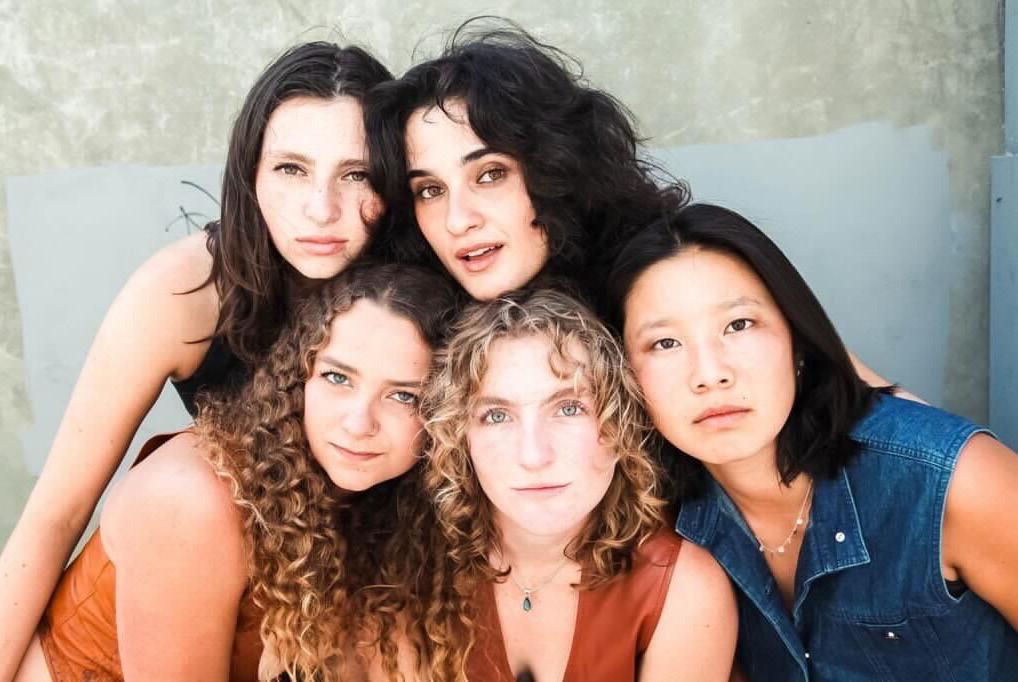
The members of Big Fish, an indie pop rock band that originated at UC Davis.
(BIGFISH / Courtesy)
including a set at the annual Whole Earth Festival.
Last year, the band released their frst album, titled “Up for Air” and consisting of seven original tracks. Te fve current band members — alongside Rhea Cosand, who played rhythm guitar with the band for a period of time — recorded the album together, though Cosand opted to leave the band to prioritize recovery from an injury. Tis past summer, they took their music on the road for their frst tour, playing shows across California.
Te group describes their music as indie pop rock but asserts that their sound does not necessarily conform to a single genre.
“Nostalgic always comes to mind for me,” Cicchini said, adding that she believes Big Fish is moody, engaging and, overall, funky.
Katya Jane, a UC Davis alum, has seen the evolution of Big Fish frsthand. Jane has been involved in the Davis music scene for years and was a founding member of the popular student-formed band Cowboys After Dark.
In this role, Jane quickly discovered just how much work goes into putting together a show and leaned into a logistical role for her own band. After graduating in 2023, Jane began Velvet Red Productions, a production company that plans live music events statewide. It was in this role that Jane connected with Big Fish.
“After graduating college and spending some time living in [Los Angeles], I came across Big Fish on social media and saw videos of one of their shows in Davis,” Jane said in a written statement. “Even just from the videos, I could tell they had such an incredible vibe.”
Jane was so taken with Big Fish that she invited them to perform at a local Velvet Red Production event in the spring of 2023.
“Shortly after discovering them, I reached out and invited Big Fish to perform at the Flower Power Festival,” Jane said. “I traveled all the way from L.A. to be there, and I fnally got to experience their live performance in person. Tey completely captivated the crowd, leaving everyone wanting more.”
Southern California fires serve as a reminder that ensuring safety measures is crucial
BY NOAH HARRIS features@theaggie.org
As California undergoes another fre-related disaster, those who live in high-risk areas need to be prepared to leave at a moment’s notice. Senior living communities can take longer to evacuate, so structures are often put in place in the instance of emergencies. While Davis has not yet been signifcantly afected by fres, disasters of any kind can present obstacles, especially for those with mobility issues.
Since the beginning of the ongoing fres in Southern California, around 850 people in care homes and nursing facilities have been forced to evacuate and fnd temporary housing. Most older care facilities that have had to evacuate have gone to more than one relocation center, with evacuees dispersing to more than a dozen diferent locations.
At one nursing home, a fre erupted in their backyard. Te speed of the fre necessitated that some residents be carried out on the employee’s backs.
Climate change has been a key reason for the starting and extent of California fires. As the seasons become more severe, more fammable growth and brush have been created. As the weather becomes more dry, the vegetation becomes much more fammable.
Older adults past the age of 65 are around 2.5 times more likely to die in a fre than younger age groups in the last 10 years. Recommendations for the general population, beyond just older adults, include discussing a fre escape plan in case of emergency with family and neighbors and to remove items that may delay the evacuation.
Around seven years ago, a devastating fre that impacted both Sonoma and Napa counties led to many people living in senior centers to seek temporary refuge in Davis. On Oct. 8, 2017, the Tubbs Fire began and would not end until 123 days later. Over 5,000 structures were destroyed, and 22 people lost their lives.
Troy Martin, the sales director at Davis’ University Retirement Community (URC), described the impacts of the fre on those in the retirement community.
Te fres spread through Napa, and it burned a lot of the Santa Rosa and Napa area,” Martin said. “We were anxiously looking at the fre reports and thinking, what do we do?”
URC is part of the Pacific Retirement Services, who manage or operate almost 60 retirement communities, including one in Santa Rosa that needed to evacuate during the 2017 fre.
Looking back to the past, Martin shared what happened to those living in the Santa Rosa community.
“Luckily, we have this conglomerate of companies that are together, and within an hour of the evacuation we had everybody in the Santa Rosa campus removed on a bus,” Martin said. “We all just sent transportation and evacuated everybody at a moment’s notice and brought them and spread them around three campuses.”
Martin was present when the Santa Rosa residents arrived after escaping the fre.
“I was here that night at 10 p.m. when they arrived — [they] walked in the door, smelled like smoke, nothing but the shirt[s] on their back[s],” Martin said. “Tey didn’t have time to grab anything. Te residents here were so kind, they opened up their doors and let them stay in their apartments for months until they were safe to go back.”
Kay Owens, a resident of URC since its opening in 2000, shared that her husband had passed away a few months before the 2017 fres, and that she had still been deciding what to do with his belongings.
“I just have a one-bedroom apartment, so I did not have [any] of these people staying [with me], but I did have the opportunity to provide a lot of men’s clothing,” Owens said. “I felt like I was helping somebody despite [being] in the throes of grief and all that goes with it.” After their arrival, the Santa Rosa residents were shocked to visit the URC’s auditorium.
“In our auditorium, we had boxes and boxes of stuf for these refugees who were staying here, and of course they had nothing,” Owens said. “Tey were so grateful. Words can’t describe. Tey were in shock and also grateful for a place to stay and [were] surprised by all the items donated to help them.”
The residents in senior living were able to escape the fre and fnd immediate housing, a huge relief to them. However, the same fre elicited a diferent outcome from Oakmont Senior Living, who owned two care homes in Santa Rosa at the time.
Martin described the events that unfolded.
“In Santa Rosa, there was a community that burnt to the ground,” Martin said. “Tey had a memory care [facility] and there’s something called an abandonment where the employees just literally walked of the job and went to go save their families in their [own] homes.”
One of Oakmont’s care homes, Villa Capri, housed people with disabilities, dementia and those who required walking assistance. Luckily, everyone in both care homes were evacuated due to signifcant help from frst responders and family members of those inside. Villa Capri was later destroyed by the fres.
Investigators from California later concluded that 20 people left behind would have died if not for outside help. Tese two instances from the same fre refect stark diferences in their natural disaster response.
Diane Harkins, a long-time Davis resident who used to work as the program director for the Center for Excellence in Child Development at UC Davis, has a loved one in memory care. Harkins expressed worries about what would happen in a similar situation to those who didn’t have many people close to them.
“I know there are residents there who never have visitors,” Harkins said. “I wonder about them.”
Harkins hadn’t thought about safety during emergencies before but became slightly concerned about her loved one’s situation, especially given her thoughts on the quality of workers at senior living centers.
“I think a better-trained staf would be wonderful,” Harkins said. “Tere seem to be sufcient people around to help out, but in an emergency, they wouldn’t be able to do one-on-one assistance.”
At URC, they have policies set in place in the instance where a similar natural disaster takes place in Davis.
“We have an emergency response folder that’s prepared at every campus and has scenarios laid out — like, [for example] a chemical spill,” Martin said. “A fre, of course, is an obvious one. Each of our employees had to practice putting out a fre with a fre extinguisher.
BY KATELYN BURNS science@theaggie.org
Whales have incredible social and vocal complexity. Similarities between human language and humpback whale songs had been noted despite humans and humpback whales being evolutionarily distant. In a study conducted in 2021 by UC Davis animal behaviorists and published in 2023 by PeerJ, a rare interaction with a humpback whale was documented.
Brenda McCowan, a professor in the UC Davis Department of Population Health & Reproduction with an interest in communication complexity in non-human animals, spoke on the whales’ feeding habits.
Tese whales come to Alaska to feed,” McCowan said. “So, they’re really focused on eating, because they need to feed in order to go back to their breeding grounds where they don’t feed for six months round-trip.”
Te study’s team had done a series of playbacks on other research vessels earlier in the season, with no responses. Normal protocol for playback study is to have a pre-playback period, where researchers simply record what is currently occuring, and a followup post-playback period, where researchers look for repercussions of the playback.
Te team was using a previously recorded contact call, called the “whup call,” theorized to convey information about where they are in a space.
“Tere are two ways that whales

It’s also brought tremendous awareness into the world of trash and litter in Davis that we all need to pitch in to help.” Davis Picks It Up is always accepting new volunteers via their Facebook or email, davispicksitup@gmail.com, and also has a monthly newsletter with upcoming events and volunteer opportunities. Tere will be three more Make Davis Sparkle cleanups this year, with additional cleanups hosted by the city and outside organizations. To stay updated on these volunteer opportunities, check out the city of Davis’ Facebook account or website.
“I would listen to albums by Te White Stripes, Garbage and Nirvana on a loop. I started playing guitar when I was 11 years old, and I would practice with my little Aria and amp and imagine one day performing for the people, especially young women.” Carroll described her experience performing at Sudwerk and hopes to work with the DLMC again.
“Our show on Jan. 11 was my frst time working with Davis Live Music Collective,” Carroll said. “I hope it’s not the last, I had such a great time. I loved the atmosphere of Sudwerks and the people who came out. I loved meeting the sound person, the staf and the people who put on the shows. Everyone was kind and a true lover of the arts. Te audience was all ages, and that was so lovely. ” Carroll also commented on her ongoing collaboration with Bad Bad Hats.
“As for Bad Bad Hats, I frst met Kerry [Alexander] back in 2011, before either of us had bands,” Carroll said.
“We played our songs for each other and became friends. Looking ahead, we have actually banded together to start a new band called Megasound. We have an album on the way. Working with them is a dream.”
Hosting events like these makes Sudwerk Brewing Company a crowdfavorite outing within the Davis community. Ana Perez, a recent UC Davis alum, explained why she loves frequenting Sudwerk with her friends and participating in the various events that they put on.
“My favorite thing about Sudwerk is their trivia,” Perez said. “Personally it’s my favorite trivia in Davis because the host, Dr. Andy, is so fun. Sudwerk is also just such a fun place to hang out with friends or grab a drink, especially on their patio.” Te DLMC, along with Sudwerk Brewery, plan to continue hosting monthly concerts and bring a variety of artists to Davis.
Taylor Ledbetter, a third-year political science major, explained her desire to attend similar events in the future.
“As someone who loves live music, I think it is so great that events like this are being organized,” Ledbetter said. “I think it is such a great thing for the Davis community and will defnitely be attending future events with my friends.”
can respond to a playback,” McCowan said. “One is to vocalize back [and] the other is to approach the speaker, because if it’s a contact call, like what we think the ‘whup’ is, then they might want to approach it.”
While McCowan was conducting the playback trial from below deck, other members of the team, including Josephine Hubbard, a postdoctoral researcher at UC Davis at the California National Primate Research Center who works on whale acoustics, and Jodi Frediani, an
internationally recognized photographer specializing in marine species, were above deck recording behavior and identifying the whale.
“One of the gold standards for understanding what animals are saying is what they’re doing when they’re saying it,” Hubbard said. Te whale was observed to be circling the boat, coming within 100 meters. Te team also noted
In these scenarios, if there are additional questions that might arise over the weekend about an assignment due, they will likely go unanswered. With this in mind, there does seem to be a correlation between the advancements in technology and the ability to make assignments due on the weekends. As platforms like Google Classroom and Canvas become commonly used tools for education, I can only reminisce back to the times when these platforms weren’t used as often as they are today: when assignments had to be submitted in person, with the weekdays being the only opportunity for students to do so. Prior to digital academic technologies, it wasn’t an expectation to go to school and turn in assignments on the weekend. My perspective is not to get rid of such assignments, only to push the deadline to the start of class rather than a day prior. Tis can allow for more time on assignments if students have busy schedules on weekends. For instance, an assignment due Sunday at 11:59 p.m. can be moved to Monday at noon, at the start of class. Tis would allow for students to use more time on an assignment and fnalize it with a fresh mindset, the day after Sunday, rather than spending their last day before a long week stressed about submitting it. Having homework is a crucial part of learning and a helpful way to apply concepts learned in lecture, but it is also important to give ample time for students to plan their workload around an often strenuous and complex schedule. With this in mind, assignments should only be allowed to be due from Monday to Friday in order to allow for a more thorough completion and to improve students’ work-life balance.
Disclaimer: Te views and opinions expressed by individual columnists belong to the columnists alone and do not necessarily indicate the views and opinions held by Te California Aggie.
FROM PAGE 4
Still, the question lingers on how one must make these microhabits stick. If you want these habits to be sustainable, anchor them to ones you already have. Your new microhabit needs to breathe, so let it. Set a designated space and time for these things. Set a reminder for the time at which they must be carried out. Te list has done half the work. It is easy to do the rest — start small, stay consistent, track progress and reward yourself. Establish a routine that works for you. Try to be patient and consistent even if it does not seem to pay of instantly. Instant gratifcation will not keep you warm at night. Don’t think too long and hard about this: Te ability to revise is a great skill to have. You can update these microhabits as you go — nothing is set in stone. Who you are is malleable. Isn’t that wonderful?
Disclaimer: Te views and opinions expressed by individual columnists belong to the columnists alone and do not necessarily indicate the views and opinions held by Te California Aggie.
FROM PAGE 4
changes in their blows, from relaxed during the initial engagement phase to wheezy during the agitation phase.
“In the same way that we have unique and individual fngerprints, whales have a unique pigmentation pattern on the underside of their tails,” Frediani said. Using the Happywhale website,
Social media represents people as having sharp, feeting opinions, which are often the most dangerous thoughts — unknowing, stubborn and volatile. No one wants to drive down a mountain that is flled with switchbacks, is steep and has a fast speed limit, yet this is the mountain we have made social media out to be.
I would love to argue that social media as a whole is some unnecessary evil, but I am in fact a sheep in the sense that I often enjoy seeing people’s trips to Rome or theories on “10 ways to make a guy fall in love with you.”
Beyond that, though, when we use social media, especially the “reposting” or “Story” features on Instagram, as a tool for political or social protest, we tend to just be separating ourselves from others — often in a way that is backed by misinformation or bias. We cannot make change if we act as or think like sovereign citizens — a sentiment social media has seemed to foster.
While the world is burning, is it our responsibility to repost news or to take action? Tey are not the same.
Disclaimer: Te views and opinions expressed by individual columnists belong to the columnists alone and do not necessarily indicate the views and opinions held by Te California Aggie.
Even if acceptance off of the waitlist is uncertain, we dedicate hours to lectures, lab work, essays and complicated quizzes. Our chances are slim, yet we still work hard.
So, as I wrap this universal rant up, I’d like you to keep in mind a few things: Don’t take out your frustrations with our registration system on your professors. Most of the advisers, teaching assistants and professors at UC Davis (shout out to the awesome ones that I have) are some of the most understanding people you’ll come across during your time here. And no, I’m not just saying that because I want to get extra credit at the end of the quarter.
Even though they have no control over the waitlists, they still do their best to help students. Whether it’s constantly requesting larger rooms to accommodate students on the waitlist or taking the time to give out PTA codes, Davis professors are very understanding. Although it’s incredibly frustrating not to get into the classes you want — let’s be patient and understanding with our professors as they are also likely frustrated with the system.
And, of course, don’t be so hard on yourself. As someone hoping to graduate this spring, I, like many other students at Davis, know how scary an uncertain future can be. At times, the fear of missing out or falling behind can be overwhelming and discouraging. I used to think it would be the end of the world if I didn’t get into the classes I wanted.
However, I quickly learned that that is not the case. Tough it is a hard pill to swallow, it’s okay if you don’t get into the classes you want; It’s okay if you take an extra year to graduate. While we face various waitlists and hurdles, remember that the journey toward graduation is not a sprint, it’s a marathon. Despite the obstacles you come across or the amount of time you take, keep on persevering. And, when in doubt, we always have people on the sidelines cheering us on as we fnish the difcult and exhausting, but rewarding, experience we call education. So keep moving forward, and sooner or later, graduation will be right around the corner. You ARE going
which uses Artifcial Intelligence to instantly match a whale’s fuke (the underside of their tails) in a global database, the whale was identifed as Twain, an approximately 38-yearold female. Twain was also identifed in photos taken the previous day, during the time in which they recorded the whup call used during the playback trial. Twain was amongst eight other whales. “She was either responding to her own contact
looks forward to longer and more dynamic playback trials in the future. For more information on the details of the research conducted and Twain, check out the team’s full study and the UC Davis website.
to graduate!
Disclaimer: Te views and opinions expressed by individual columnists belong to the columnists alone and do not necessarily indicate the views and opinions held by Te California Aggie.
FROM PAGE 6
“Te short story is that I discovered my process by accident,” Kehoe said in a past interview with Te California Aggie. “I had errant paint drops that landed on the plastic sheeting covering the foor. Once they dried, I could peel them of the plastic and play with them. Tat’s when I started to work entirely with poured paint skins.”
In an efort to make her process sustainable, and also save her own money on paint, Kehoe found that she could utilize already-bought house paint that had gone unused.
“I saw an unlimited supply that I could use and keep out of landflls,” Kehoe said. “I also have a soft spot for things that are unwanted. Strangely, I felt sorry for those dusty old cans.”
Unlike “Lucky Seven,” in which Kehoe limited herself to only use seven diferent colors, “A Curious Garden,” widely varies in color schemes and hues. “Happy Accidents,” the only difering piece as it was completed on paper, actually includes dried drops of every single paint color used throughout the entire exhibit.
With some pieces made entirely of diferent blues or greens, Kehoe layers shades to create abstract depictions of various feelings, places and things. “Superbloom,” for example, featured blocks and swirls of oranges, pinks and yellows to resemble an infnite feld of poppies. “Low Tide” is a mix of earthy seaweed tones, deep blues and sparing splashes of red.
“Even when she’s focusing on one color, like in one piece based of of malachite [a green crystal], she didn’t just stick to greens,” Madeline Furtado, a fourth-year design and art history double major, said. “She also includes blues, reds, aquamarine and other colors that allow the green to pop out even more.”
Visiting the gallery during its opening reception on Jan. 10, Furtado and others refected not only on what Kehoe might have been trying to translate through her pieces but also on their own interpretations of the various colors and shapes.
Josue Toribo, a second-year English and design double major, found new ways to look at Kehoe’s three-dimensional works.
“If you look at this one from the side [“Verdant”], it almost looks like a chart of data, like it’s a record of population density or some sort of map,” Toribo said.
“It’s so catching, and you’re able to see the visual movement. Te art really pops out at you.”
Open until Feb. 28 and free for everyone to view, the intricacies of Kehoe’s designs are too singular to go unseen. Returning to Davis for an artist talk at the Pence Gallery on Feb. 22, visitors can also hear about the methods and meanings behind the exhibit from the artist herself, in conversation with Pence Gallery Director Natalie Nelson. Kehoe’s “A Curious Garden” is also currently showing alongside a handful of other talented artists. Be sure not to miss Stephen Giannetti’s “All In” poker chip sculptures and canvases, Jordan Hayes’ incredibly realistic fgure paintings in her new exhibit,
Trough their collaboration, Jane has gotten to know the members of Big Fish as musicians and people and can attest to the band’s unique nature.
Tey truly embody Davis culture,” Jane said. “They care about their community and they spread positivity through their art and through their friendships. Each member is incredibly gifted and they have this ability to put on an effortlessly entertaining and technically impressive performance.”
Jane has continued to collaborate with Big Fish since the Flower Power Festival, putting together a show for them in Los Angeles during their tour last summer and planning a Picnic Day performance for this coming April.
Tough the group has certainly risen in popularity since their frst performance, the band has remained committed to their original goal of making music and performing in a way that truly represents their dynamic. “We’re very devoted to doing this because we love it — but at the same time we’re very unserious,” Cicchini said. “It’s just been so much fun.”
You can only prepare so much until the real thing happens, and then it’s really about just falling back on what you’ve learned and not having to think, because that’s when the emergency preparedness comes into power.”
URC is not the only senior living center in Davis that is concerned about emergency responses. Atria Senior Living in North Davis has trained their staf to be prepared with protocols in case of an urgent situation.
“Emergency protocols and specially trained staf are in place to address any potential threats posed by wildfres, hurricanes, foods and severe winter storms, quickly and efectively,” the website reads. “Te moment a threat is identifed, we work with emergency experts to fully understand any potential safety issues.”
For URC, Martin said that they have the Davis police on speed dial in case of an emergency.
“We have a great relationship with the local police department,” Martin said. “In fact, they come here often to meet with residents and mingle and sort of answer questions. [...] Tey [even] called and gave us the warning in advance before the public knew [about the stabbings].”
As the fres in Southern California continue to damage people’s livelihoods and homes, senior living communities in Davis continue to be on guard if disaster ever strikes Davis or nearby communities.
After a rough start to the Aggies’ season, the team looks to improve at future matches
BY ABIGAIL DESA sports@theaggie.org
On Jan. 11, the UC Davis women’s tennis team traveled to Seattle, Washington for their frst matches of the season against the Washington State University Cougars and the Eastern
Washington University Eagles. While the team demonstrated great efort and perseverance, the UC Davis Aggies unfortunately fell short over the weekend, losing both matches. In their frst match, the Aggies played Washington State University and were defeated with a fnal score of 0-7. Te Cougars dominated the day, slashing wins across the board for
the singles category, as well as taking a team point from the doubles category after winning two of the three doubles matches.
Te Aggies’ lone victory was claimed by the doubles pair: Claire Galerkin, a fourth-year managerial economics major, and Kaia Wolfe, a third-year aerospace science and engineering and mechanical engineering double major.
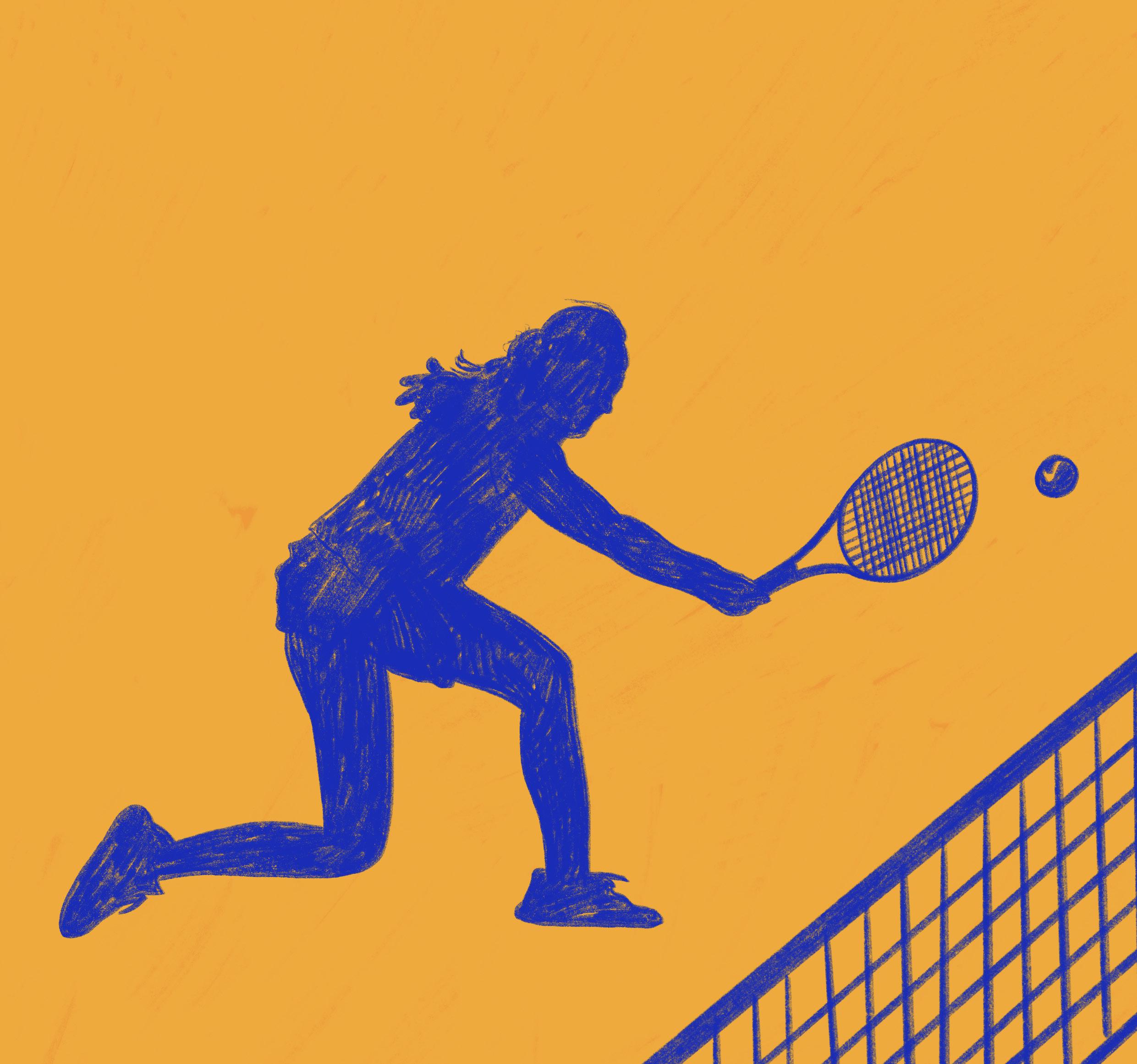
The 84-73 loss reflects strong three-point shooting by the Beach
BY COLINA HARVEY sports@theaggie.org
On Jan. 11, the UC Davis men’s basketball team took on Long Beach State University at a home game in the frst of two matchups against the Beach this season. Coming of of a win against California State University, Fullerton on Jan. 9, the UC Davis Aggies looked to start a winning streak and improve their record, which currently hovers around .500. At the start of the match, the Aggies struggled to score against a strong Long Beach defense, going scoreless for over three minutes. The shutout ended when Connor Sevilla, a second-year undeclared major and guard, hit a three-pointer.
the Aggies’ rhythm picked up at the five-minute mark with a strong rebound by TY Johnson, a fourthyear communications major and guard. The rebound led to a layup by DeBruhl, a fourthyear sociology major and guard, and was followed by another three-pointer from Sevilla, tying the game at 9-9.
by Long Beach, that sent Johnson to the line, led to the Aggies moving up into the lead.
having a three-inch height disadvantage compared to Long Beach, they managed to out-rebound the Beach, especially ofensively. However, the Aggies did not always capitalize o rebounds. A UC Davis possession midway through the game gave the Aggies four shot attempts but none connected with the net. throughout the half, with neither team leading by more than about six minutes to go in the Sevilla hit his third three-pointer, tying the game at 25-25.
throughout the last frst half, but in the last two minutes, a clutch rebound by Nico Rocak, a business administration (MBA) graduate student and forward, led to a layup by Carl Daughtery Jr., a third-year human development major and guard.
This, along with a buzzerbeating by Johnson, the Aggies to stay
Long Beach going into halftime — only down by one point.
UC Davis displayed strong threepoint shooting in the frst half, scoring six of the nine shots they took. Sevilla led the Aggies in scoring with nine points, while Devin Askew led the Beach with 14 points. Pablo Tamba, a fourth-year communications major and forward/ wing, started the second half with a quick layup to take the lead for the Aggies, but Long Beach’s Cam Denson and Kam Martin responded with two quick three-pointers, bringing their lead to fve. A few minutes in, Askew was benched due to a knee injury.
struggled to score much after Tamba’s layup 30 seconds in. While the Aggies were down by six, Sevilla attempted a three-pointer but air-balled — leaving the Aggies to recover the ball and Sevilla to go for another three-pointer, which also missed.
Isaiah Chappell, a first-year economics major and forward, ended the Aggies’ scoring drought with a strong layup. While Sevilla cooled of from behind the three-point line, no other Aggie seemed to be able to take his place. As UC Davis struggled to make three-pointers, Long Beach was just starting to heat up. A three-pointer from Long Beach’s TJ Wainwright brought the Beach’s lead to double digits

Te match was heated and hard-fought on both sides, resulting in a tiebreaker set in Galerkin and Wolfe’s favor. The match on Jan. 12 against Eastern Washington University was ferce, with both teams fghting hard to secure the win. Fired up by the tough loss the previous day, the Aggies showed up ready to shift the tides. Despite the frst doubles match ending in defeat for the Aggies, Galerkin and Wolfe rose to the occasion and earned a doubles win. With the matches tied, it was up to Polina Marakhtanova, a frst-year cognitive science major, and Solia Valentine, a graduate student in the Master of Management program, to clinch the win. Unfortunately, they came up short and relinquished the frst team point to the Eagles. On the singles front, Marakhtanova and Valentine continued by picking up early wins for the team, showing their dominance in singles and making a strong comeback from their previous doubles match. However, their eforts were soon followed by two losses for the Aggies, bringing the score to 2-3 to lean in favor of an Eagles victory.
It was up to Galerkin to keep the Aggies in the game — with a two-set victory, Galerkin clinched the win and tied up the score. Galerkin’s high performance throughout the weekend had her named the Big West Women’s Tennis Player of the Week, highlighting her valuable wins and athleticism.
Isabella Bringas, a first-year neurobiology, physiology and behavior major, then took over for the singles division. Nevertheless, she was unable to close the gap against her opponent , concluding the series of games and producing a team score of 3-4, with the Eagles taking the victory.
Tese matches assist the UC Davis tennis players in gaining experience and opportunities before the Big West Conference, making them best prepared for what is to come. Although the start to the season was rocky, the Aggies stood their ground and gave their full efort in every match. Despite setbacks, UC Davis will take the next steps forward and work toward coming back stronger. Up next, the UC Davis women’s tennis team is headed to Stanford, California for their match against Stanford University on Jan. 18.
The Aggies finish 3-1 at the ASU Cross-Conference Challenge, poised for a successful 2025 season
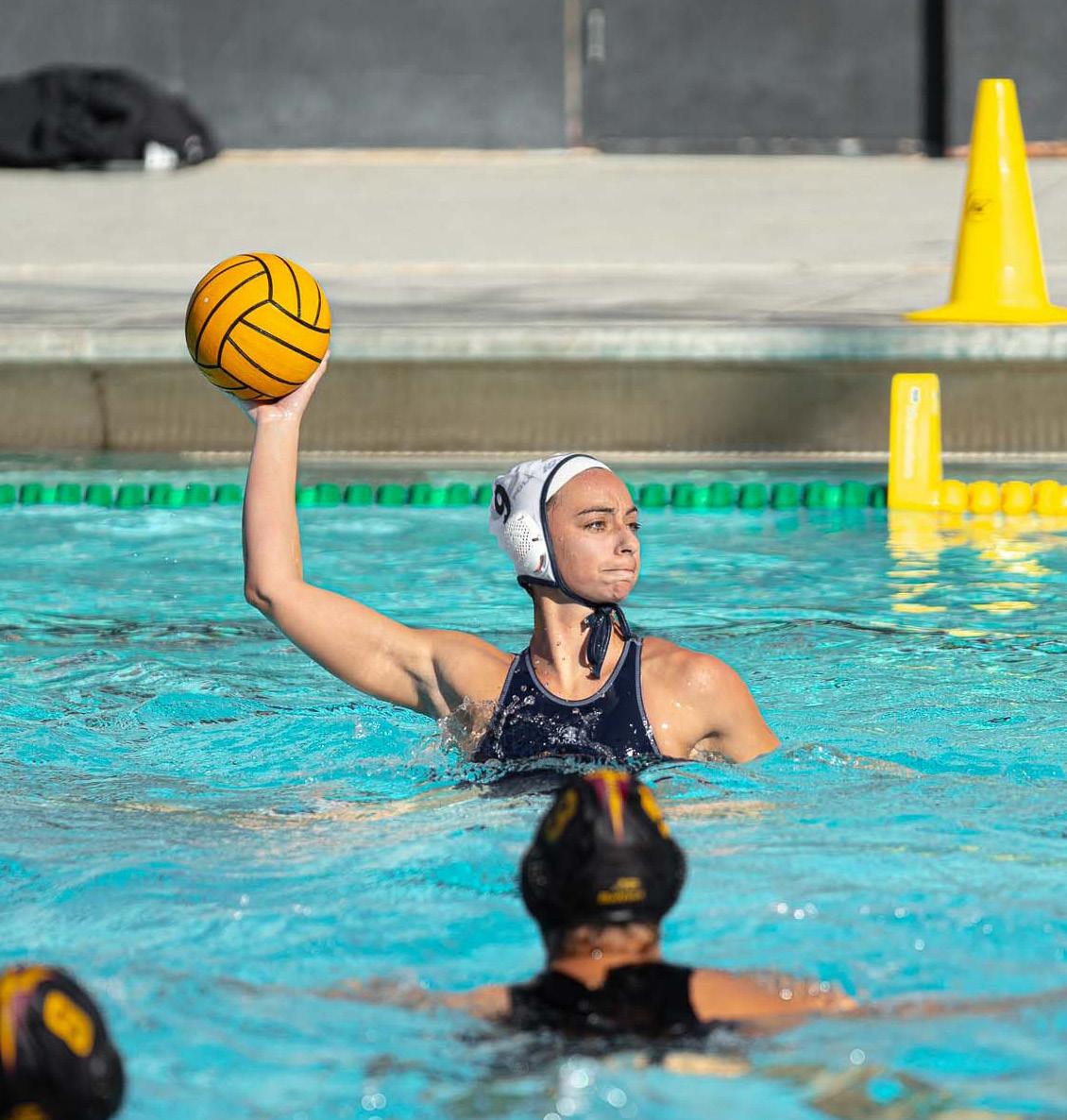
Long Beach went on to shoot an impressive 7-10 from the three-line in the second half. On the other hand, the Aggies only shot 2-13 from the three-line, a big reason for the Beach’s growing lead. Even DeBruhl, one of UC Davis’ top-three point shooters, was unable to get a single three-pointer
Johnson attempted to keep UC Davis in the game, drawing a lot of fouls from Long Beach State. In the second half, he scored 24 points, 13 of which of free throws. While Johnson scored points for the Aggies, Askew was making a big impact on the Long Beach side. In the second half, Askew scored eld and
As Long Beach continued to outshoot the Aggies, their lead grew and eventually slipped out of UC Davis’ reach. With about ve minutes to go, the Long Beach lead hovered around 10 points. The Aggies were not able to gain momentum to close the gap, and it became clear that Beach would the win. When buzzer nal
players
underperformed, with other strong point producers scoring at least four points under their average. In addition, Long Beach’s shots were more consistent and on-target. In the second half, Long eld, while UC Davis made only 35.71%, making cult for UC Davis to stay in reach
With this loss, the Aggies’ record fell to 3-3 in conference and 9-8 overall. However, this is only the start of the season for the Aggies as they look to their next games against UC Santa Barbara on Jan. 18 and the University
BY DIEGO CERNA sports@theaggie.org
Over Martin Luther King Jr. Day weekend, the UC Davis women’s water polo team competed in the Arizona State University (ASU) CrossConference Challenge, held from Jan. 18 to Jan. 19. Tese matches marked the UC Davis Aggies’ frst debut into the 2025 season, following the team’s ffth-place ranking in the preseason Big West Conference polls.
On the frst day of the competition, the Aggies played the California Baptist University Lancers for their frst game, earning the win with a fnal score of 16-9. Te Aggies’ stifing defense held the Lancers to only two points in the frst half.
Kelly Hungerford, a fourth-year sustainable environmental design major and attacker, started the team of strong with a goal within the frst minute of gameplay. Sam Woo, a fourth-year human development major and utility, and Margo Tempel, a frstyear undeclared major, scored two goals each. Overall, 11 diferent UC Davis players scored and contributed to the win.
Four hours later, the Aggies faced California Lutheran University. In her collegiate debut, Georgia Daly, a first-year managerial economics major, scored four goals to match Cal Lutheran’s total overall goals.
Lucy Holland, a third-year molecular and medical microbiology major and goalkeeper, held down defensively, saving four goals and recording two blocks and three steals. Te Aggies held Cal Lutheran to only four goals, winning with a fnal score of 22-4.
On the second day of competition, the Aggies faced a tough competition. They first played the host, the Arizona State University Sun Devils, in the closest game of the invitation.
Hungerford recorded her frst hat trick of the season, scoring four along with one steal. Gianna Nocetti, a third-year mechanical engineering major and attacker, contributed two goals and an assist. In her frst collegiate debut, Eva Stein, a frst-year psychology major and goalkeeper, shut down three of the Sun Devils’ scoring opportunities. Despite their eforts, the Aggies fell 8-10 in the competitive match against ASU.
In the following game, the Aggies faced the San Diego State University (SDSU) Aztecs to round out the invitational. Te match was even in score until the third quarter when the Aztecs jumped out to a 7-4 lead. Te Aztecs led 10-7 in the fnal 5:59 minutes of the match until the Aggies mounted a comeback, scoring four consecutive goals and taking a one-point lead. Te Aggies were able to close the game out with a fnal score of 13-11 in perhaps the most thrilling game of the invitational. Holland frmly held the Aggies’ defense, blocking six shots in the cage. Sadie Henry, a second-year neurobiology, physiology and behavior (NPB) major and utility, recorded a personal best of four goals and an assist to help lead the Aggies in ofense. Ashlyn Wallin, a second-year psychology major and utility, was also a key contributor toward the victory, recording a goal, two steals and drawing two exclusions on the Aztecs.
Finishing 3-1 against their invitational opponents, the Aggies gained crucial momentum and are poised to carry that success into the rest of the season.
“We battled back against SDSU after being down most of the game,” Head Coach Katie Waldthaler said. “I’m proud of our growth this weekend and how we played as a team.”
Te Aggies will look to build onto this momentum as they face UC Los Angeles and Stanford University in the Cal Cup at UC Berkeley on Jan. 25.